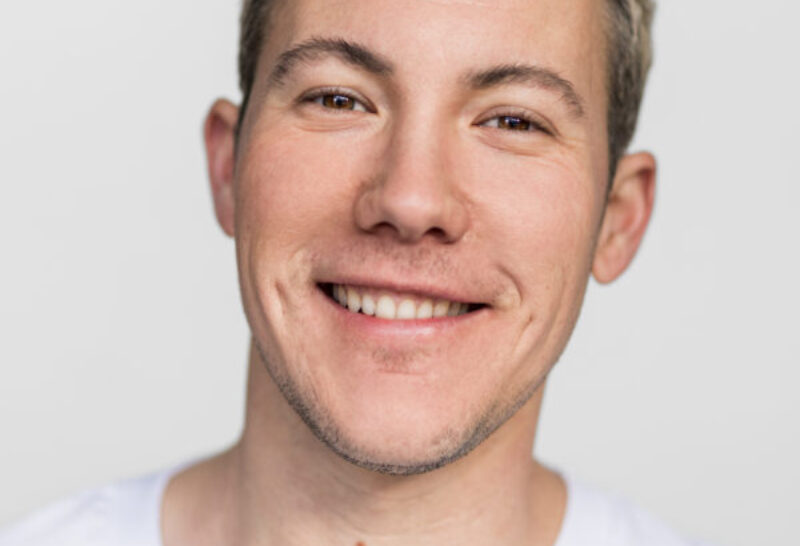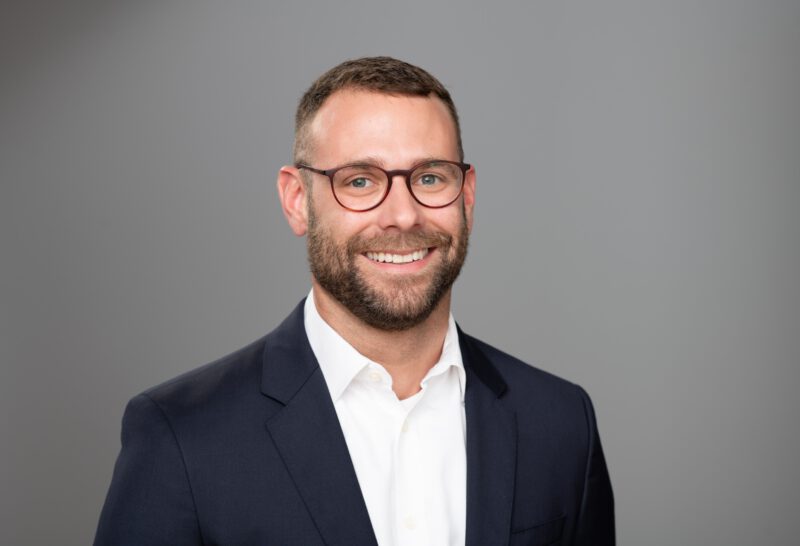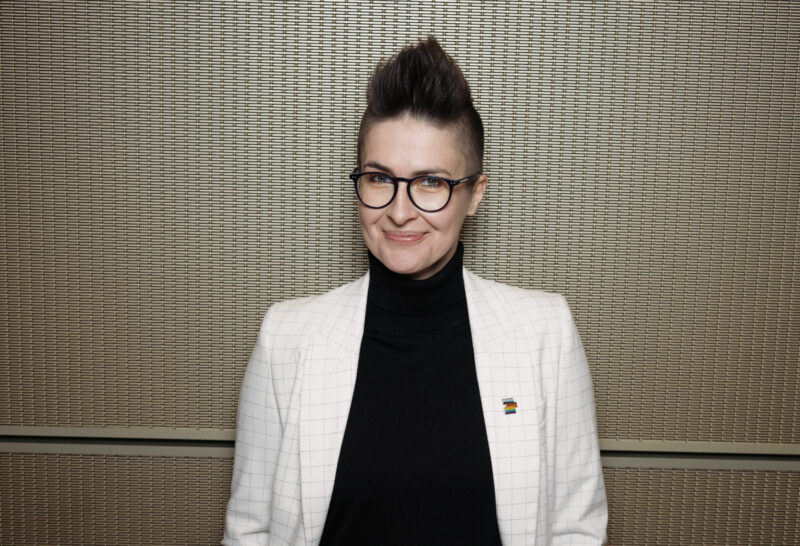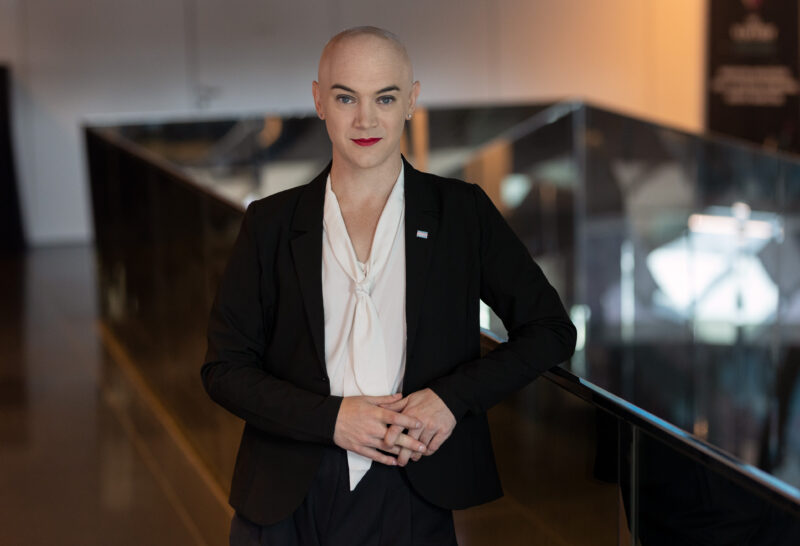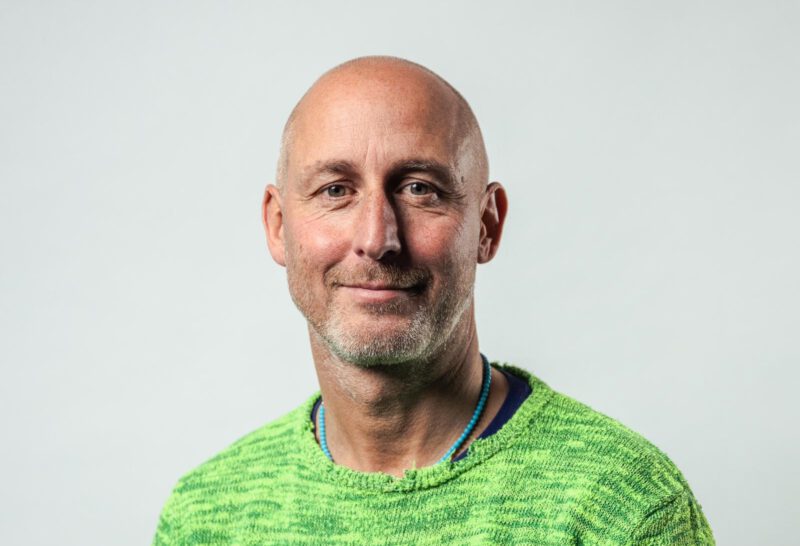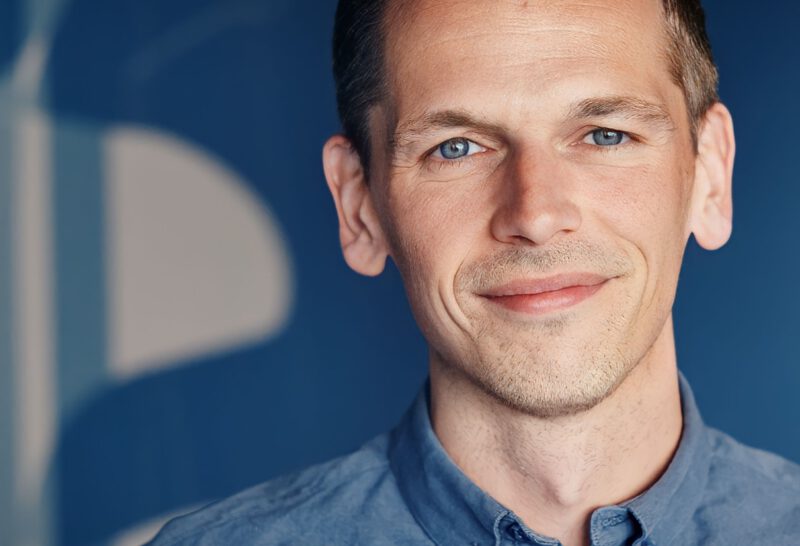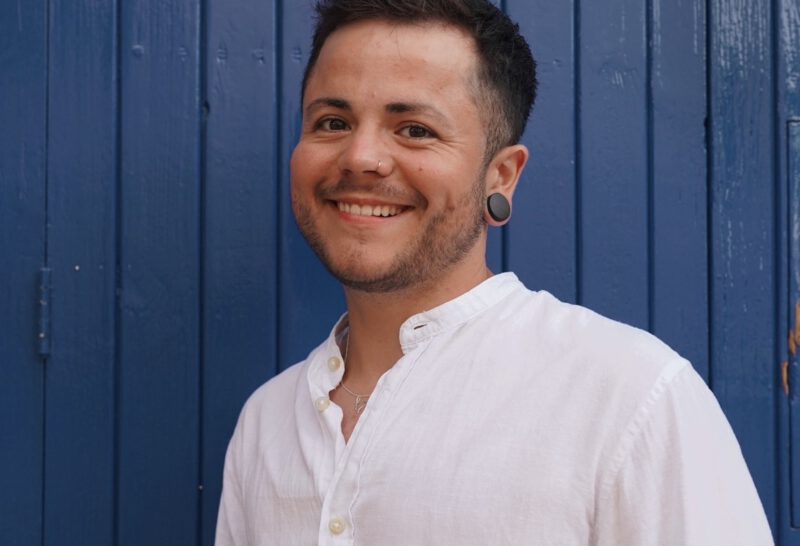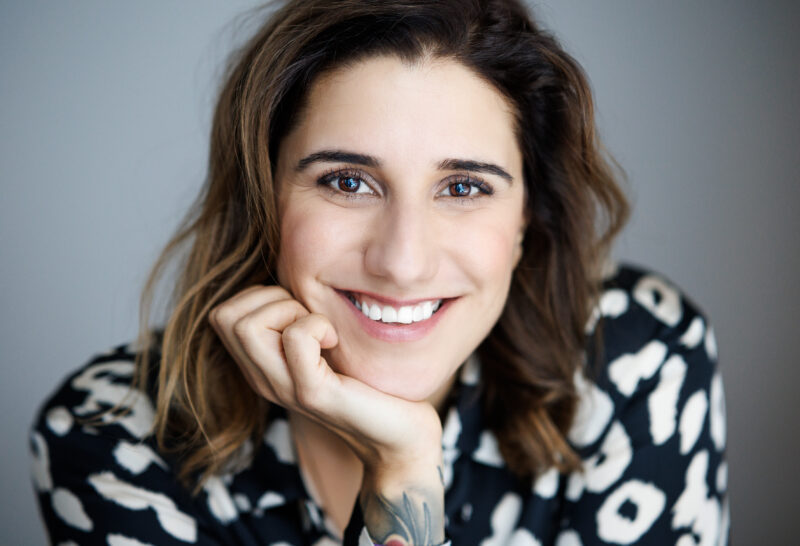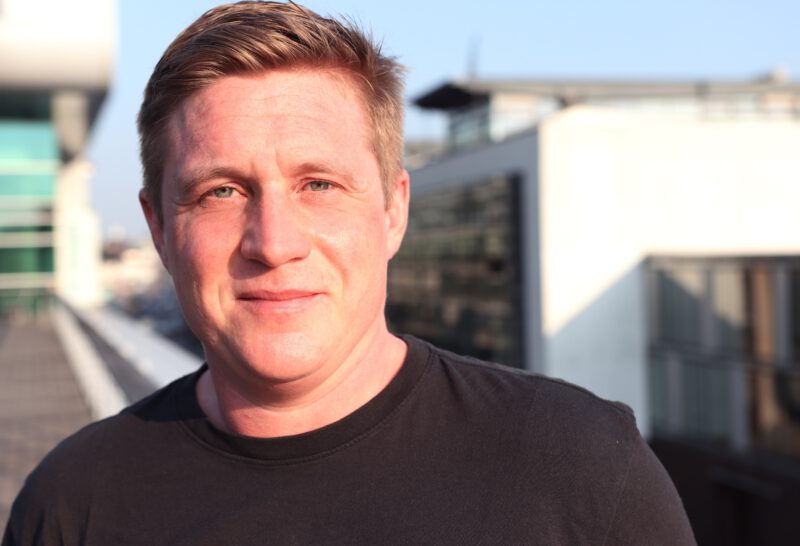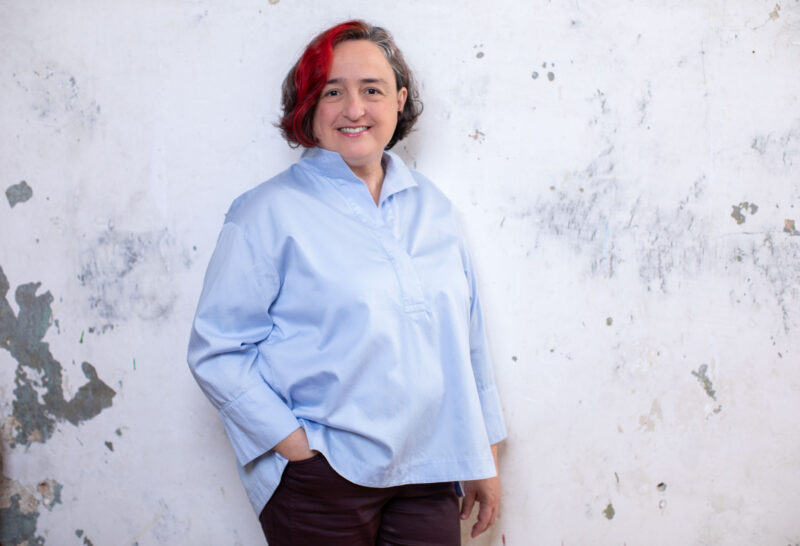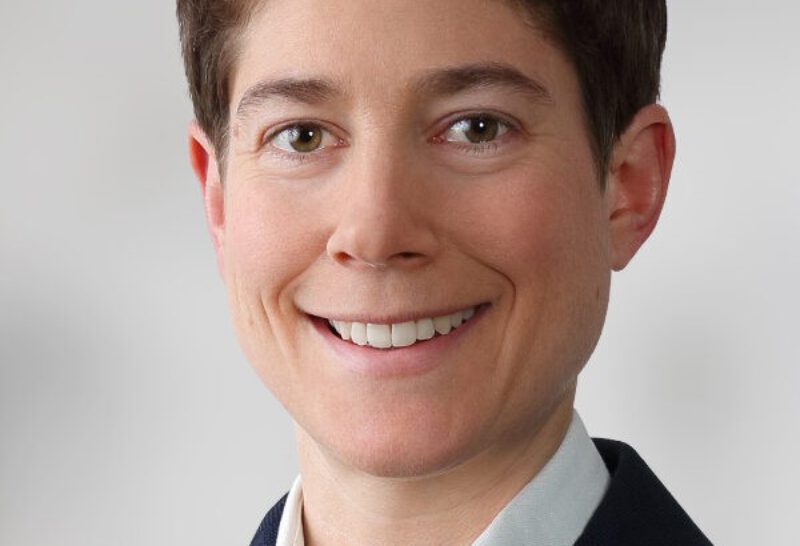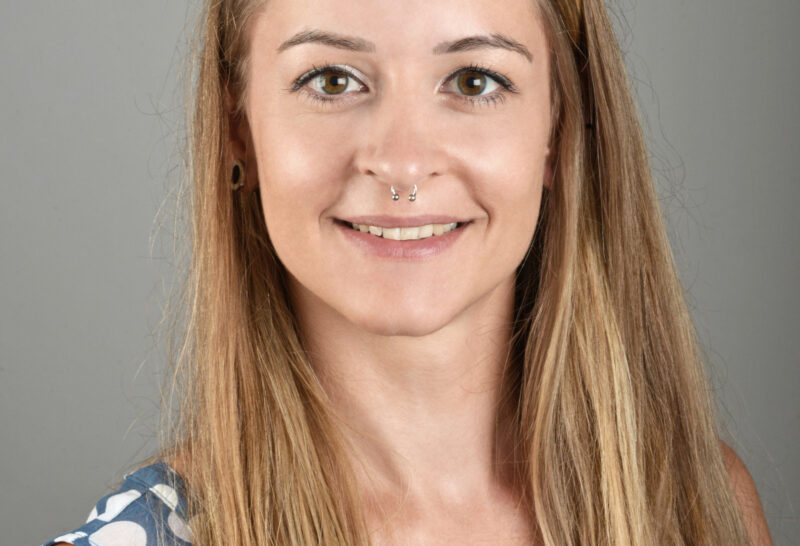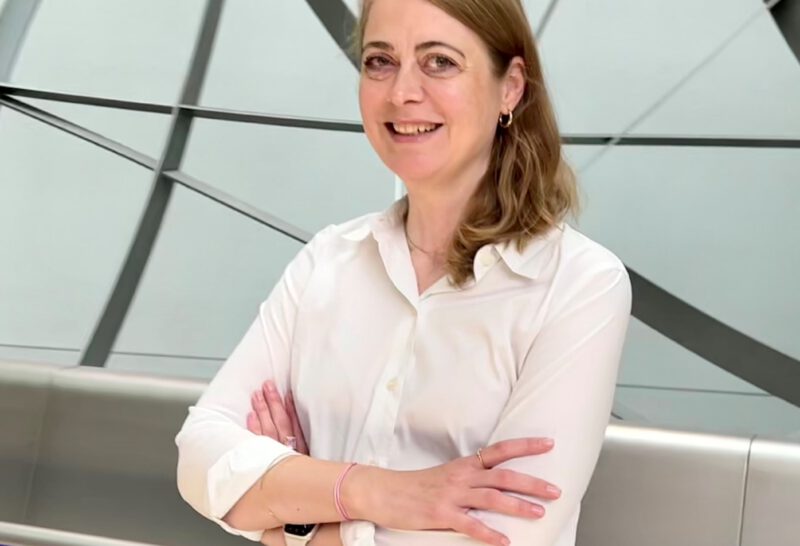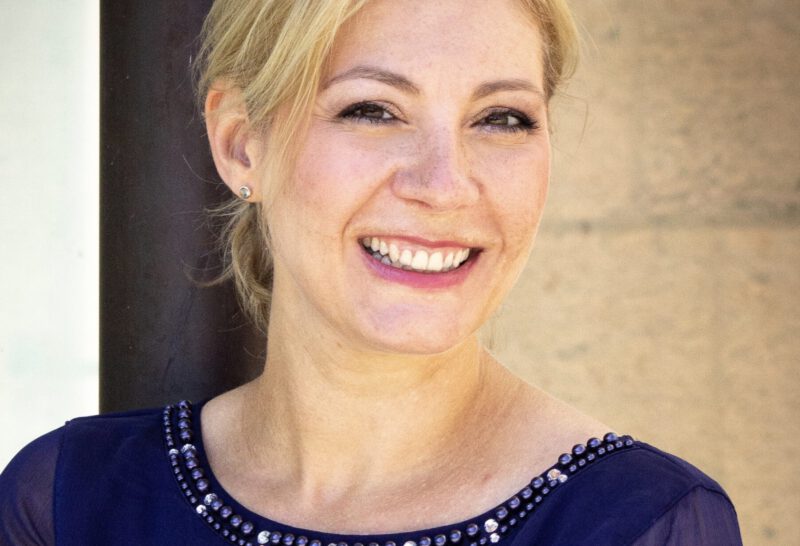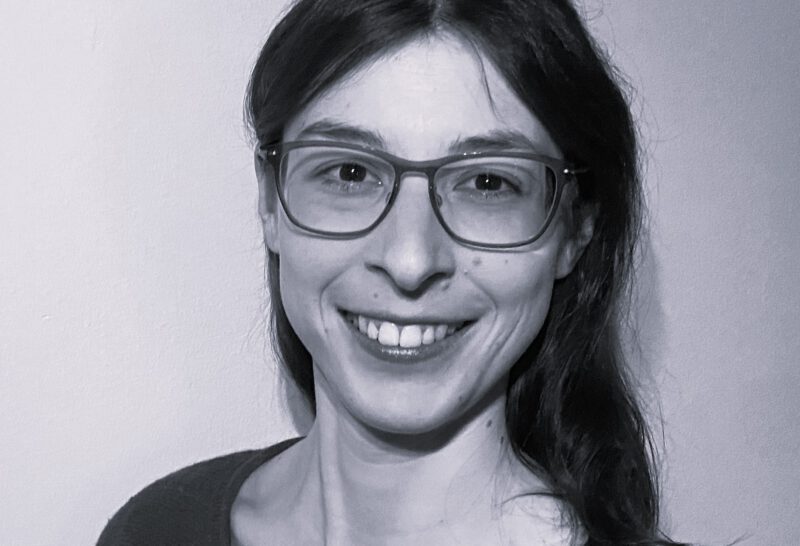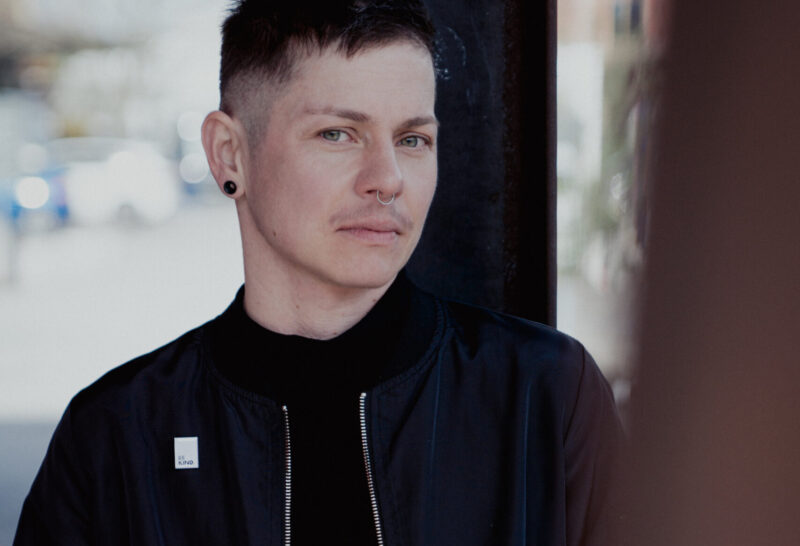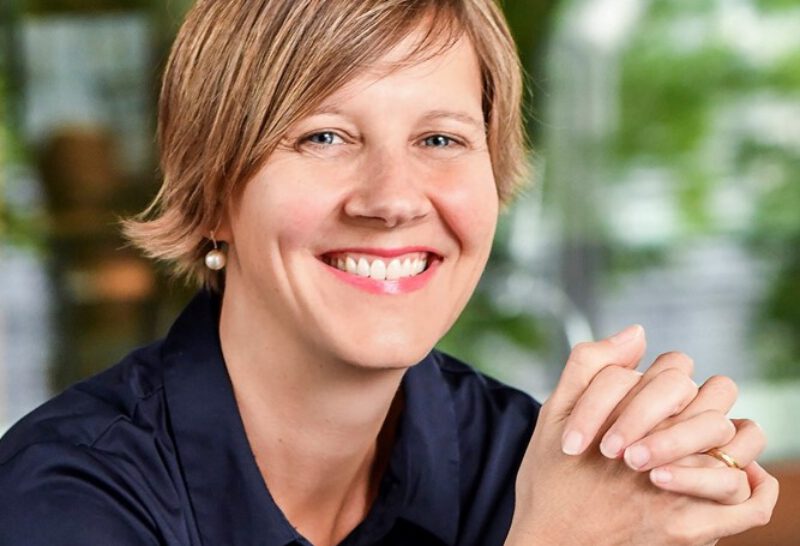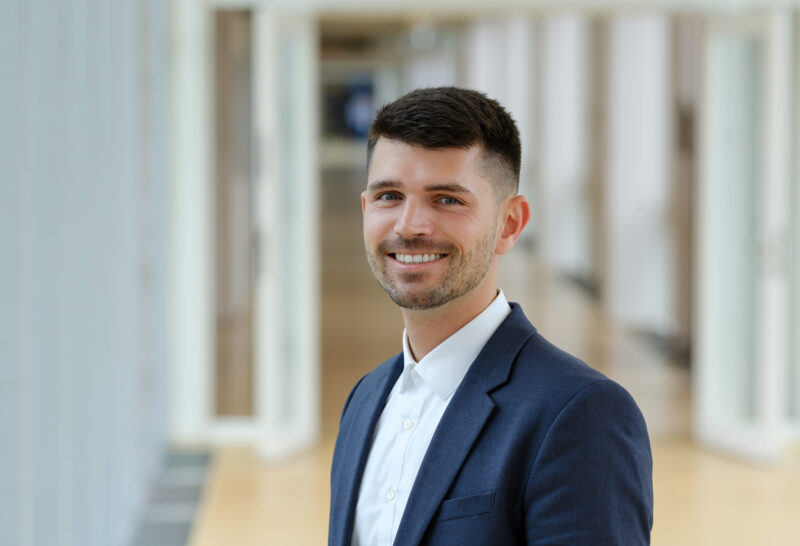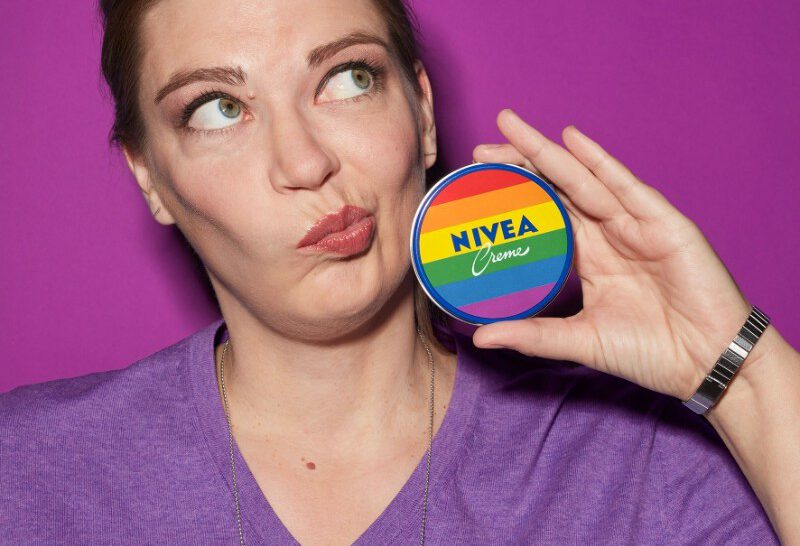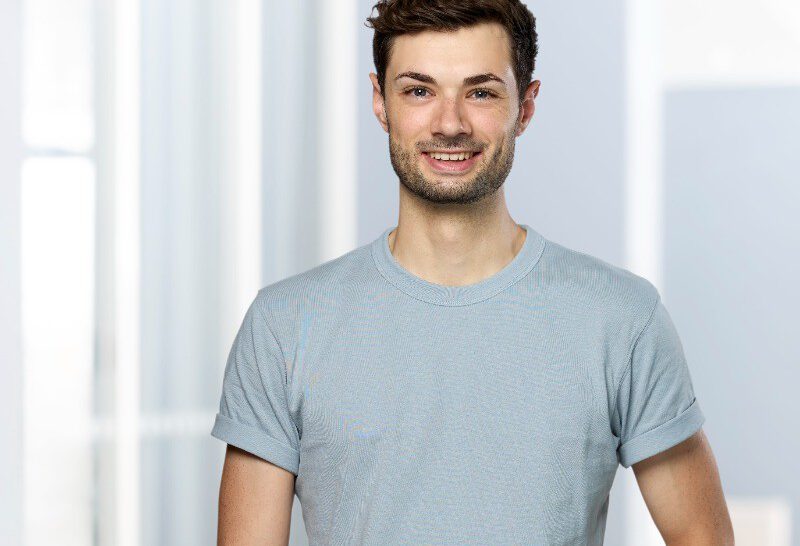At the online conference “Trans and the Labor Market” organized by the Bundesverband Trans (BVT*), PROUT AT WORK contributed with a keynote and a workshop. Additionally, PROUT AT WORK and the Deutsche Gesellschaft für Trans*- und Intergeschlechtlichkeit e.V. (dgti) hosted a full-day conference in Frankfurt am Main. Under the theme “Trans* in the Workplace,” experts, company representatives, and activists came together to raise awareness for gender diversity and to develop strategies for inclusive workplace cultures.
Why Gender Diversity in the Workplace Matters
Trans* people continue to face disproportionately high levels of discrimination. According to the “Out at the Office?!” study, 87% of trans* respondents have experienced workplace discrimination. This highlights the urgent need to sensitize companies to the challenges and needs of the trans* community.
Online Conference: Trans* and the Labor Market
On February 29, 2024, the online conference “Trans* and the Labor Market” by the Bundesverband Trans* (BVT*) took place. Many trans* and non-binary individuals are hesitant to come out at work due to fear of career setbacks or discrimination. As such, this year’s conference focused on the design and handling of coming-out processes:
- How can companies support trans* and non-binary individuals during their coming out and retain valuable talent?
- How can employers create preconditions that make it easier for trans* and non-binary employees to come out?
At the online event, PROUT AT WORK delivered a keynote on “Trans* Coming Out – The Benefits of Responsible Support in the Corporate Context,” and hosted a workshop titled “Shaping the Coming Out at Work – Tips and Tools to Support Employees Effectively.”
dgti and PROUT AT WORK: Trans* in the Workplace
To promote gender diversity in the workplace, dgti and PROUT AT WORK—supported by consulting firm Campana & Schott, Commerzbank, KfW Bank, audit firm PricewaterhouseCoopers GmbH, and the Office for Multicultural Affairs (AmkA)—organized a full-day conference in Frankfurt am Main on November 26, 2024. The event was primarily aimed at employees and executives in HR and recruiting, as well as diversity and equality officers.
Dr. Christophe Campana, founder of Campana & Schott, emphasized: “Now more than ever, corporate responsibility is crucial to making the workplace a safe space for everyone.”
Presentation of the Study “TIN*clusive at the Office?!”
Dipl.-Psych. Prof. Dr. Dominic Frohn and M. Sc. Nain Heiligers presented findings from the new study “TINclusive at the Office?!”* This study explores the workplace experiences of trans*, inter*, and non-binary (TIN*) individuals:
- More than half of TIN* employees avoid coming out to colleagues or managers.
- Only 12.6% of respondents reported no discrimination, while over a third experienced high to very high levels of discrimination.
- Two-thirds reported experiencing specific discrimination based on their identity.
Best Practices and Workshops
Participants could join three hands-on workshops:
- Transition in the Company and the Self-Determination Act
- Creating and Sustaining Safe Spaces – Companies as Safer Spaces
- Non-Binarity and Inclusive Language
The event also encouraged sharing of best practices. Companies like Campana & Schott emphasized that diversity is a key factor for success. Alexander von Steinbüchel, Partner at Campana & Schott, stated: “We want everyone at Campana & Schott to feel welcome, comfortable, and safe.”
Conclusion: A Path Toward Greater Acceptance and Equal Opportunities
“Gender diversity is an asset for companies. When employees can bring their full potential to work, we all benefit.” – Jo Labecka, Customer Relationship Manager, PROUT AT WORK
The conference “Trans* in the Workplace”* made it clear how essential a safe and supportive work environment is for trans* people. Through the sharing of knowledge, the presentation of new research, and practical workshops, an important step was taken toward building a more inclusive working world.
Impressions from the event
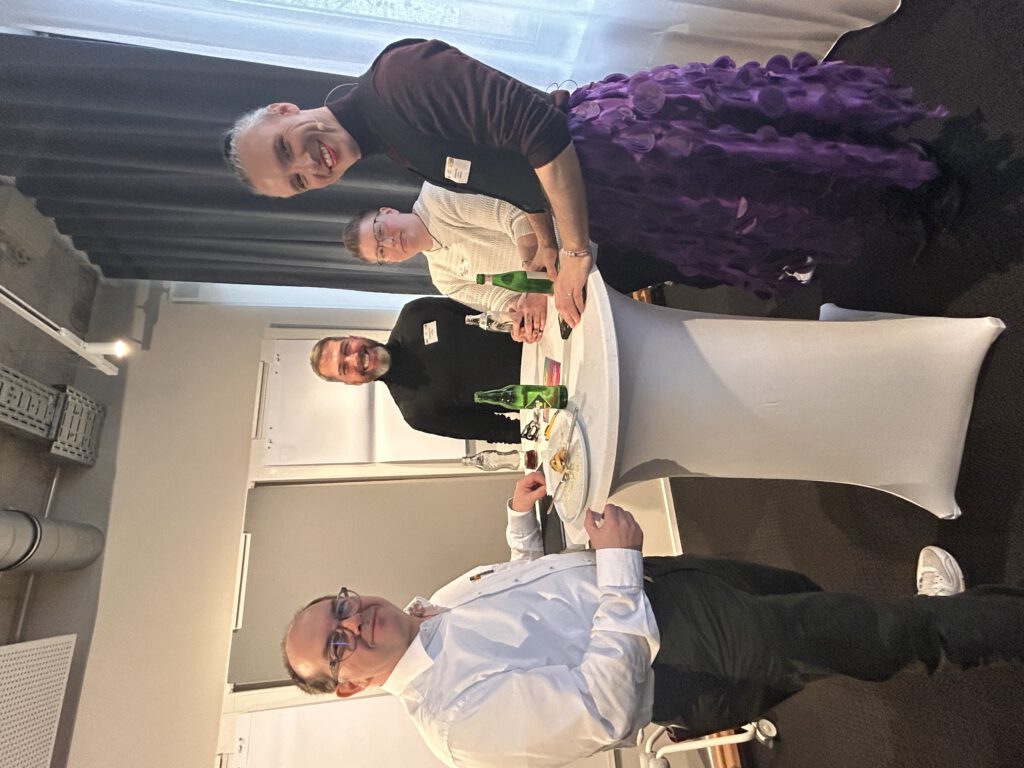
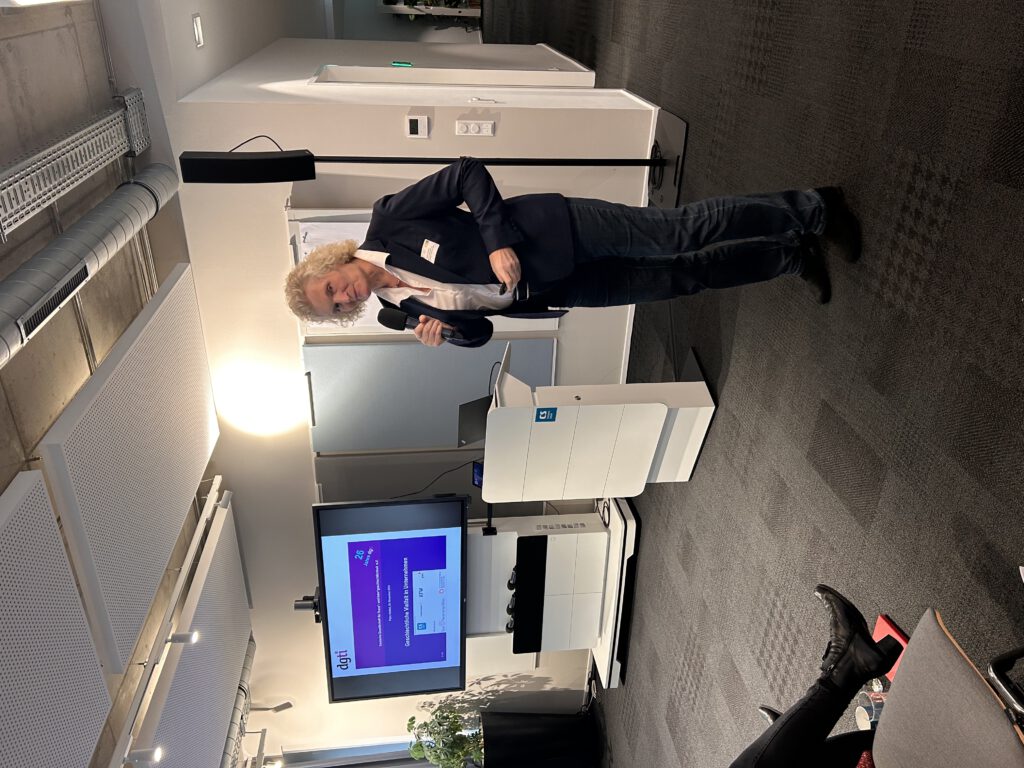
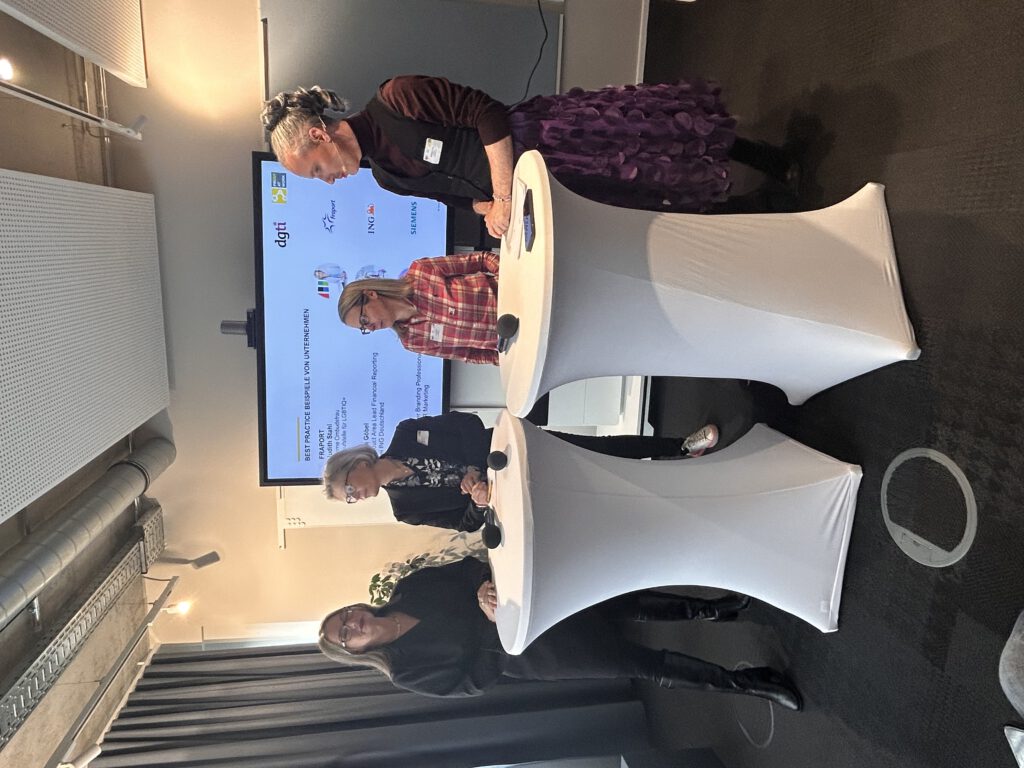
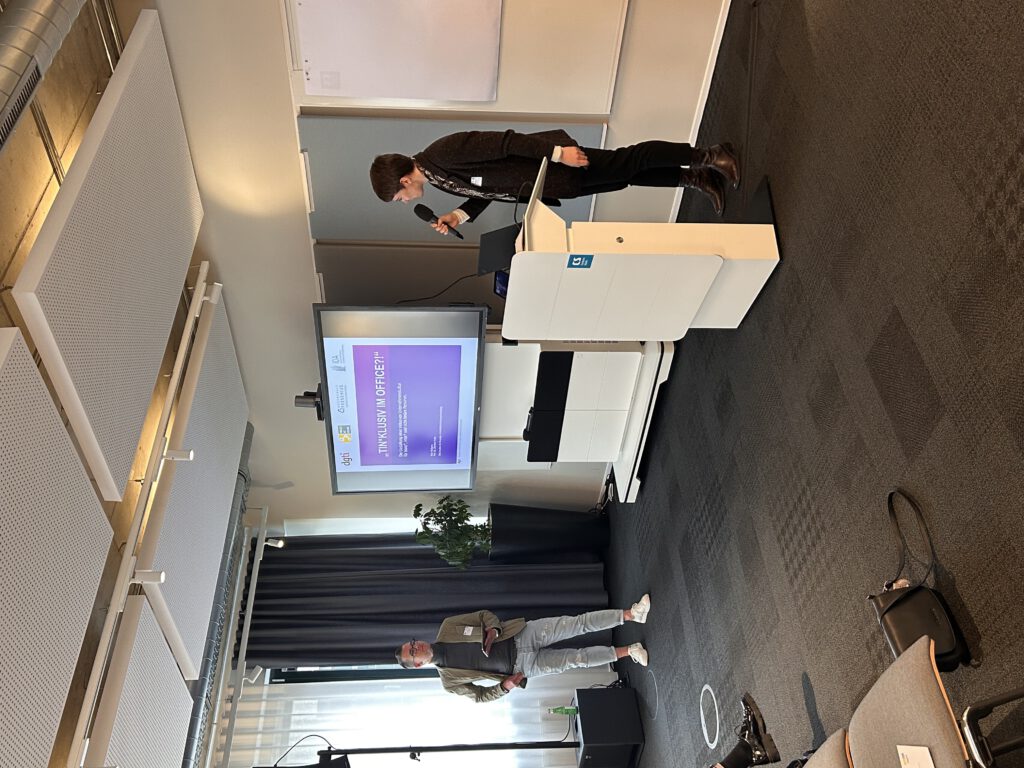
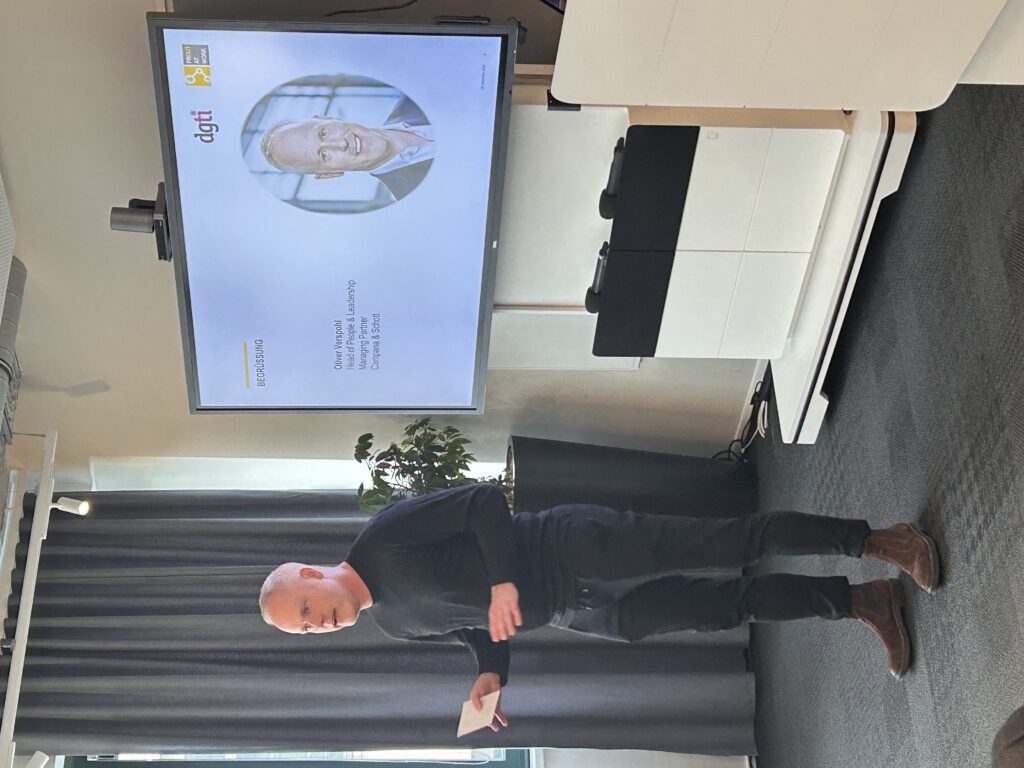
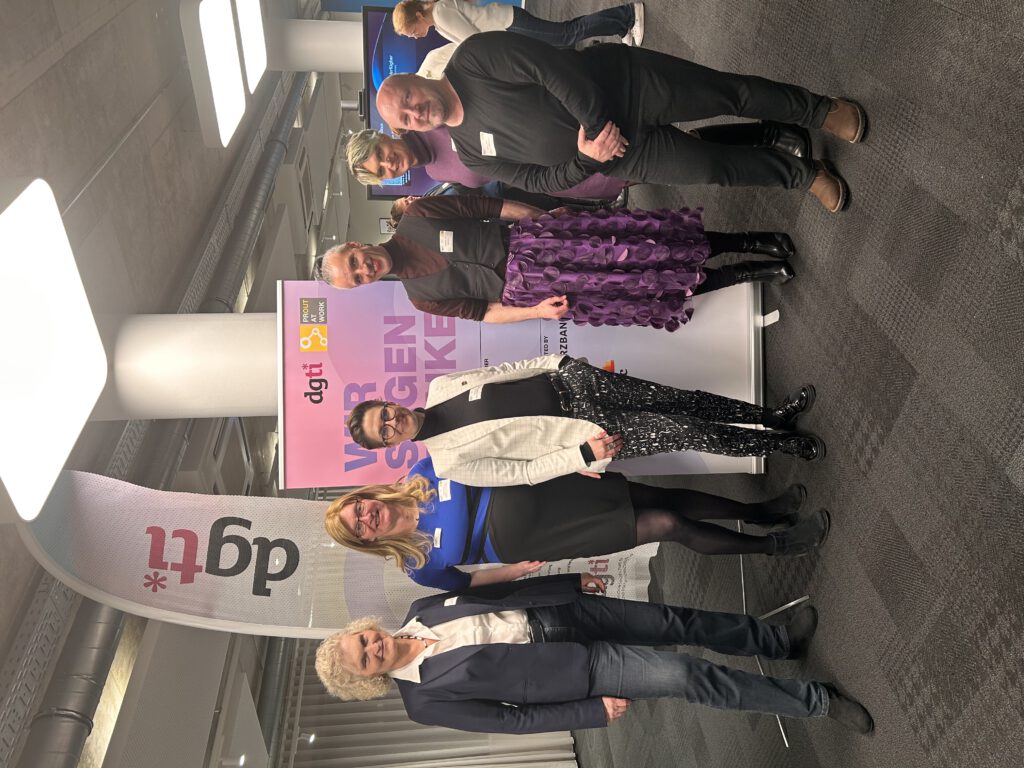
Follow us on social media!
Instagram: https://www.instagram.com/proutatwork/
LinkedIn: https://www.linkedin.com/company/proutatwork/
How Queer-Friendly Are We as a Company? – A Self-Assessment Using Corporate Maturity Levels
Many companies that focus on diversity are unsure: How queer-friendly are we as a company? Where is there room for improvement? Often, there is a lack of an impartial external perspective. OTTO and PROUT AT WORK show how companies can assess themselves and determine where they stand on their journey toward queer equality.
PROUT AT WORK has developed a simple tool that allows Diversity & Inclusion managers and company network representatives to assess where they stand with their efforts for queer equality in the workplace: the CORPORATE MATURITY LEVELS: QUEER DIVERSITY. In this process, companies evaluate themselves in nine categories, all of which should be part of a comprehensive diversity strategy:
- Anti-discrimination
- Structures and Processes
- Queer Network
- Communication
- Top Management Support
- “Out in the World” Model
- External Positioning
- Trainings
- Queer Diversity KPIs
Depending on the actions companies have already implemented in these categories, they assign themselves a level from one to five:
- Level 1 – Queer Diversity Beginner: At the beginning of the journey to more Queer Diversity
- Level 2 – Queer Diversity Promoter: Positioning the topic among employees and in society
- Level 3 – Queer Diversity Advanced User: Queer as part of the company’s diversity strategy
- Level 4 – Queer Diversity Expert: Driving societal change around Queer Diversity
- Level 5 – Queer Diversity Pioneer: Queer Inclusion Leader
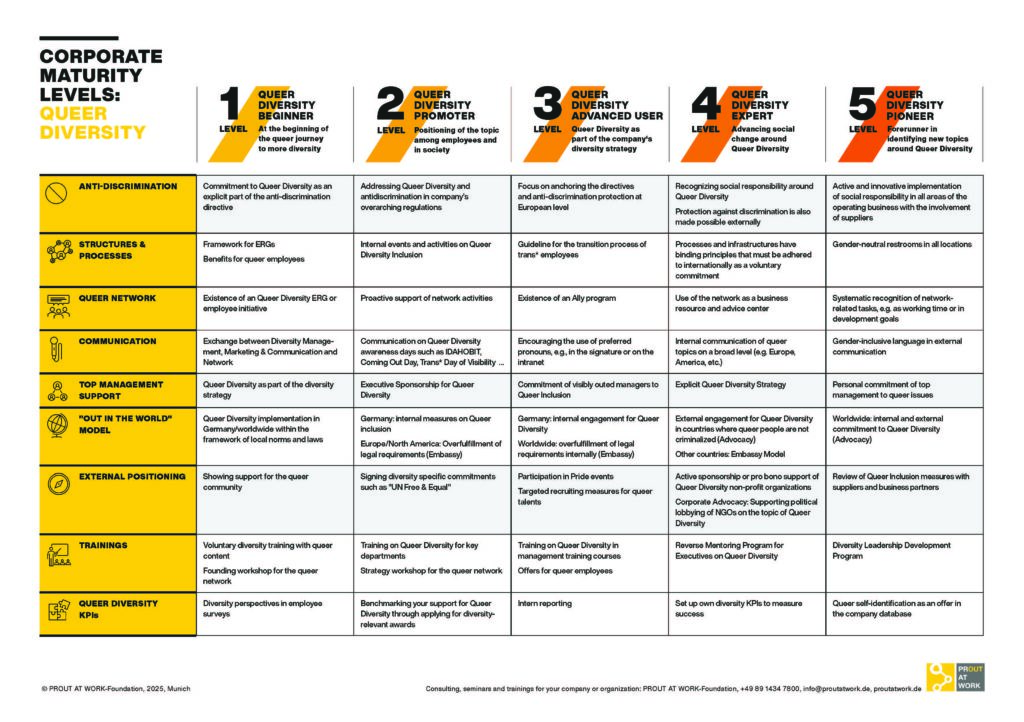
In the interview, Tobias Gruber, Head of Sustainability, and Ingo Bertram, Head of News, Content & Research, share insights into the process of self-assessment using the CORPORATE MATURITY LEVELS: QUEER DIVERSITY at OTTO.
What measures for greater equality of opportunity for
queer individuals have you already implemented at OTTO?
Ingo Bertram:At OTTO, the employee network MORE* has been advocating for queer interests since 2019 and aims to increase the visibility of queer individuals within the company context. In addition to numerous internal information and awareness programs for employees and HR experts, MORE* has, among other things, increased the visibility of queer people in OTTO’s external communications, promoted the establishment of gender-neutral restroom facilities, and co-published a Transidentity Guide with the Diversity & Inclusion team, which was awarded by PROUT AT WORK. As a member of the Board of Diversity Networks at OTTO, the network regularly brings queer topics to the executive board level.
What challenges are you and OTTO
facing when it comes to diversity?
Ingo Bertram: At OTTO, we currently experience a very open, tolerant, and discursive corporate culture that takes diversity in all its facets very seriously. That’s something we’re really happy about. At the same time, the greatest ongoing challenge is to address the many dimensions of diversity—which queerness is only one of—as equally and comprehensively as possible. Even though we believe we’re on a good path, there’s definitely still room for improvement.
What motivated you to assess yourselves using our
CORPORATE MATURITY LEVELS: QUEER DIVERSITY?
Ingo Bertram: MORE* is a network that primarily works internally. That made it all the more important for us to regularly evaluate where we stand—especially in comparison to other companies and networks—using external criteria. The CORPORATE MATURITY LEVELS: QUEER DIVERSITY from PROUT AT WORK provided us with a good and very practical starting point and orientation.
How did you approach the self-assessment?
What was the process like? Who was involved?
Tobias Gruber: In the core team of MORE*, we held a multi-hour workshop where we evaluated ourselves using the CORPORATE MATURITY LEVELS: QUEER DIVERSITY and its subcategories. One by one, we discussed the individual categories and critically questioned our efforts based on the evaluation criteria. It was especially important for us to identify our own blind spots—areas where we saw potential for improvement. In our case, this included international orientation. A colleague from our Diversity & Inclusion team accompanied the self-audit.
You’re already very active in terms of diversity & inclusion.
What were your experiences with the tool?
What worked well and what could be improved?
Tobias Gruber: The tool worked well for us, even though some of the audit’s categories didn’t quite fit with our network’s direct and practical work at OTTO—for instance, international orientation, which isn’t especially relevant for us as a company primarily operating in Germany. What we especially liked was the tool’s simple structure and how easy it was to carry out the self-audit. It was straightforward and smooth and gave us a great opportunity to reflect critically and systematically, and to challenge our current practices. This kind of outside-in perspective is crucial to reviewing one’s own priorities and thematic focus.
What concrete actions have you planned or
taken as a result of the CORPORATE MATURITY
LEVELS: QUEER DIVERSITY assessment?
Tobias Gruber: We didn’t derive any direct measures from the audit, partly because we didn’t see an immediate need for action in every area—or in some cases, action simply wasn’t feasible, such as internationalization. However, we did incorporate the audit results into our 2024 kickoff workshop, where they helped sharpen our strategic and thematic network focus alongside other topics. That worked really well.
Are there any specific results you’d like to share?
Tobias Gruber: We see our MORE* network and its impact at OTTO as Level 4 in the audit, and we’re planning to conduct another audit in 2025. As a network driven by employees who volunteer their time alongside their main jobs, we’re very satisfied with our current audit result—especially considering that we have only limited resources.
Thank you, Tobias and Ingo, for the conversation!
Ingo Bertram is Head of News, Content & Research and a member of the lead team of MORE*, OTTO’s queer employee network.
Tobias Gruber is Head of Sustainability and also part of the lead team of MORE*, OTTO’s queer employee network.
About OTTO: With 17 million products from more than 19,000 brands, around 11.3 million customers, and over 6,500 partners, OTTO (otto.de) is the largest German online retailer. In the 2022/23 fiscal year, OTTO generated a gross merchandise volume (GMV) of 6.3 billion euros. OTTO is part of the internationally active Otto Group, headquartered in Hamburg, and employs 6,000 people across Germany. More info: otto.de/unternehmen.
The interview was published in the 2nd edition of “Diversity in Law and Business.”
Follow us on social media!
Instagram: https://www.instagram.com/proutatwork/
LinkedIn: https://www.linkedin.com/company/proutatwork/
In Germany, the situation for rainbow families has improved in recent years – especially through the introduction of “marriage for all” in 2017, which granted same-sex couples the right to marry. Nevertheless, they still face major challenges – due to societal prejudice but also because of discriminatory legal conditions.
Legal Situation
German parentage law allows for a maximum of two legal parents for a child. In two-mother families, the second mother must adopt the child through stepchild adoption, even if she is married to the birth mother. Trans* individuals are only assigned a legal parental role based on the gender marker assigned at birth, and inter* individuals are sometimes not legally recognized as biological parents at all. This legal uncertainty directly impacts the parents’ (working) everyday lives. It is therefore all the more important for them to find an inclusive environment in the workplace and flexible options for balancing family and career.
Back in 2023, PROUT AT WORK published a guide on “Rainbow Families in the Workplace,” which highlights best practices and offers insights into the topic.
In 2024, the topic remained relevant within the foundation. We closely followed the political developments with anticipation. The coalition government had initially outlined in its coalition paper the intention to reform parentage law, including eliminating the need for stepchild adoption for lesbian couples. However, it is now clear that this reform will not be implemented within the current legislative period. Therefore, it is all the more important to stay engaged, continue networking, and actively advocate for improvements for rainbow families.
Exchange on Rainbow Families in the Workplace
The topic is also more relevant than ever among our cooperation partners. In July 2024, Frauke Bareiss, a consultant and Project Lead at PROUT AT WORK and author of the guide, was invited to speak at the online forum of the QNB (Queeres Netzwerk Bayern) titled “We are Family?!”. Alongside speakers from the Rainbow Families Center Munich, the Bavarian Youth Association, and the University of Munich, her contribution on rainbow families in the workplace rounded out the diverse program, offering plenty of opportunities for exchange among participants. PROUT AT WORK was able to provide many with a new perspective on the topic, as the intersections with the world of work had not been considered by many, as became clear in the subsequent discussion round.
Our long-standing PROUT EMPLOYER, Commerzbank, once again offered us the opportunity to delve deeper into the topic in November. The Pride network ARCO organized an online talk on rainbow families, where Frauke was once again able to represent the foundation. With other guests from the media and the workplace, participants discussed personal experiences as well as the legal situation and specific challenges of rainbow families in the workplace. For example, the inclusivity of forms was discussed. The many interested webinar viewers gave overwhelmingly positive feedback, emphasizing how many new insights and ideas they could take away from the session. A great success for all involved!
Support for Companies
The topic is more relevant than ever – the political and legal developments in the near future remain to be seen. Regardless, companies can take action and fully utilize their opportunities to create an inclusive work environment for all families. To support this, PROUT AT WORK has developed a new awareness session on rainbow families. It builds on the aforementioned guide and offers an insight into the topic, as well as best practices and learnings on allyship. It also highlights the situation outside of Germany, broadening the perspective on the significant global differences.
The session is designed for the entire workforce, but also for queer networks, and is always conducted with ample space for questions and discussion.
WE LOOK FORWARD TO WORKING WITH YOU – DEVELOPING WORKPLACE DIVERSITY
Let’s start the conversation:
Follow us on social media!
Instagram: https://www.instagram.com/proutatwork/
LinkedIn: https://www.linkedin.com/company/proutatwork/
Together. Courageous. Queer.
“[…] at a time when companies may be abandoning this topic because they are afraid of a shitstorm and discussions and becoming a target, it is important to say: We’re sticking with it!” – Marc Opelt, Chairman of the Divisional Board, OTTO.
With this strong statement, Marc Opelt, Chairman of the Divisional Board at OTTO, welcomed the audience to the PROUT AT WORK Conference 2024 on October 24 and 25, 2024 at Lead Partner OTTO in Hamburg and virtually in front of the screens. Under the motto “Together. Courageous. Queer.”, many interested people once again took part in this year’s specialist and industry event to exchange ideas and get to know new committed people and see old acquaintances again.
The PROUT AT WORK Conference 2024 in numbers
215 participants from 81 companies and organizations. Two-day program with two keynotes, two panel discussions, three interviews and seven breakout sessions. Interested parties from all over Germany and beyond gathered at the new OTTO headquarters to take part in interactive breakout sessions, discuss in large and small groups and take presentations from inspiring speakers back to their own companies or organizations. In order to make the event more inclusive and develop it further, there were also three sign language interpreters on site this year to make the conference presentations accessible to deaf people.
“I really love the way you bring company representatives together! At other events, it often feels like a reverse cold call from consultants and coaches. Here I actually had the opportunity to exchange ideas with people from other companies and networks!” – anonymous conference participant
In addition to external speakers, numerous company representatives also set the tone, providing participants with best practices from their respective companies and thought-provoking content.
We would like to thank lead partner OTTO, the supporting companies Audi, Boehringer Ingelheim, Clifford Chance, Deutsche Bank and Novelis as well as mobility partner MOIA for making the PROUT AT WORK Conference 2024 possible. Recordings of the presentations and insights into the event can be found on the conference website.
Panel Talks
What does Queerness mean to you?
Speakers & Moderation
After the welcome address, the PROUT AT WORK Conference 2024 kicked off with the first interactive format of the day, which took the audience on a journey to answer the question “What does queerness mean to you?”. After an introduction by speakers and moderation, the conversation was repeatedly opened up to contributions from and short discussions with the audience. The resulting exchange underlined the motto of the event and provided aha moments, thoughtful faces and the desire to exchange ideas even after the content contribution.
„If you do not understand […] try to understand the other’s perspective! I think that this will help us bring more freedom into our community and stop the hate and discrimination we are still facing today.“ – Dr. Traugott Gruppe, Medical Director Germany, Boehringer Ingelheim
Pride Day Contest
Speakers & Moderation
Lorenz Finsterhölzl (he/him), Senior Consultant at Capgemini Invent
Emma Weilbier (she/her), Working student in Diversity Management at Capgemini Invent
Björn Jahnke (he/him), Senior Consultant / Network Spokesperson Diversifly, Deutsche Lufthansa
Petra Wallner-Rübeling (she/her), Equal Opportunities Officer, Jobcenter Frankfurt a.M.
Enea Cocco (he/him), Project Lead, PROUT AT WORK
This year, it was not the audience favorites with the most votes that took the stage, but three actions selected by PROUT AT WORK and their representatives. These actions represented best practices from different areas and organizational sizes, demonstrating the diversity of actions submitted for PRIDE DAY GERMANY 2024. The ideas – from raising the rainbow flag to creating queer awareness training and external marketing initiatives – were discussed in depth, challenges were addressed and the importance of the day of action was emphasized.
“We had an incident last year where a customer came and wanted to tear down the rainbow flag in a property because he was totally outraged by it. This led to discussions among our seven property managers, and the manager who was affected said: “Well, now you can see how necessary it is to really show our colors together.” That was also the name of our campaign this year, and now the banner doesn’t just stay up during the campaign period, it hangs all year round.” – Petra Wallner-Rübeling, Equal Opportunities Officer, Jobcenter Frankfurt a.M.
Interviews
Responsibility of companies
Speakers
Martin Frommhold (he/him), Head of Corporate Communications, OTTO
Albert Kehrer (he/him), Executive Board, PROUT AT WORK
Martin Frommhold from OTTO and Albert Kehrer talked about the tension between entrepreneurial attitude and economic interests. The interview focused on how attitude can be made visible both internally and externally, whether a diversity quota in advertising makes sense and how OTTO deals with the flood of hate comments.
“When I look at our trainees […] new generations are coming in now, and it’s wonderful to see. It’s not something that develops out of necessity, but rather happens quite naturally.”
– Martin Frommhold, Head of Corporate Communications, OTTO
Being out in sports
Speakers & Moderation
Emily Bessoir and Marcus Urban shared their very different experiences as openly queer professional athletes. While Emily encountered almost exclusively positive reactions in basketball, Marcus faced significantly greater challenges in football. In conversation with Ingo Bertram, they reflected not only on the differences between men and women in sports but also on how strongly the environment within each sport shapes the coming-out process.
“[…] be yourself. Especially as a woman: You can take up space, you can be successful, you don’t have to make yourself smaller. And exactly, just show up as you are. I once read a quote: Be so authentically yourself that everyone else feels comfortable to be themselves too. […] That’s what I would tell everyone.” – Emily Bessoir, Professional Basketball Player
“Que(e)r durchs Land”
Speakers
In 2024, Brix Schaumburg cycled across the country for the third time as part of the “Que(e)r durchs Land” tour. Joining for the first time—but certainly not the last—was Robin Scheerbaum. Together, despite several rainy stages, they covered 1,640 kilometers in 17 days and visited 16 queer organizations along the way. Their message: time to rethink corporate mindsets. In collaboration with companies, they aim to develop queer-focused campaigns. During their tour, they raised a total of €7,000 in donations, which they presented to PROUT AT WORK at the conference.
“We talked about so many different topics while cycling—and that’s exactly what we want to do with the companies we partner with on the tour: to come up with campaign ideas together, to design campaigns together. It’s not just about us riding through Germany with their logo on our chests, but about creating a full campaign and embarking on a shared journey.” – Robin Scheerbaum, systemic coach & consultant / content creator for queer activism
Keynotes
Diversity Fatigue
Speaker
In her keynote, Alex Gessner spoke about diversity fatigue—the exhaustion that comes from endless efforts to build DE&I structures without seeing sufficient progress. She encouraged the audience to think beyond their own bubble, to question their privileges, and to actively seek out missing perspectives. Her practical tip for networking—both in the figurative and literal sense: instead of forming closed circles, create half circles—this keeps the view outward open and makes it easier for new voices to find their way in.
„We have the same problem even within our community. We have people arguing over pronouns, whether to use gender-inclusive language or not. Which flag to use? […] We are fighting for visibility. You don’t have to buy it, you don’t have to display it everywhere, but please don’t take up space, time, and resources to discourse about which flag we should be using. Let people use the Progress Pride flag!“ – Alex Gessner, Chief Operating Officer, ACI Consulting
Trans* visibility in parliament
Speaker
Dr. Adrian Hector, a trans* member of parliament for the Green Party, has transformed his anger over experiences of transphobia into political engagement. With passion, he advocates for queer people to know their rights and for anti-queer hate crimes to be consistently prosecuted. To strengthen visibility and a sense of belonging, he invites queer individuals to the Hamburg City Hall—a place where they, too, should feel welcome and represented.*
“What is important to me in my political work is the topic of visibility and empowerment. Being trans has a lot to do with shame, with doing everything possible so that no one sees that I’m trans, to have good passing, to look like a ‘real’ man or a ‘real’ woman, so that no one notices and I don’t have to expose myself to it, because it is so heavily associated with shame. And I find that terrible, because being trans* is perfectly fine!”**
– Dr. Adrian Hector, Member of the Hamburg Parliament for the Green Party
Breakout Sessions
Sovereign instead of fearful: How to respond correctly in the case of racism complaints
Speaker
No one wants racism in the office or workplace. Clearly. But sometimes it happens – someone files a complaint with HR or a supervisor about a racist incident in the company. What to do? How can managers and HR verify the allegation? How should they respond? In the short term? Medium term? And long term? The practical breakout session provided guidance and was specifically aimed at people who are currently or will be in leadership positions.
Rainbow Families in Companies: The Legal Situation, Status Quo, and Challenges
Speaker
In this exchange format, the focus was placed on the legal situation of rainbow families in the workplace. Where should support begin? What structures need to be established to ensure sustainable engagement? Participants reflected on the status quo in their own companies and potential challenges in addressing the topic.
Recognizing and Addressing Queerphobia in the Workplace
Speaker
What does queerphobia mean, and what are microaggressions? What prevents people from reacting appropriately in such situations? In this interactive online breakout session, the focus was not only on how to recognize queerphobia and discrimination in everyday (work) life. Participants were also provided with tools for intervention and communication strategies to effectively respond to such situations.
No Diversity Without Democracy: How Companies Can Engage with Employees for Democracy
Speakers
In the workplace, where people from all walks of life meet every day, promoting democracy and diversity plays a crucial role. Strengthening people and the local economy are goals that Deutsche Bank pursues with its holistic approach to societal engagement, as well as to the promotion of diversity, equal opportunities, and participation. In a time when societal challenges such as racism, populism, extremism, and social inequality are becoming more and more prevalent, more dialogue and encounters are urgently needed. In the workshop, participants gained insight into how Deutsche Bank and its employees live and practically implement their social responsibility both in Germany and worldwide.
“Our Stories – Sharing is Caring” – An Empowerment Space
Speakers
Charlotte Wunn and Sy Legath opened a safer space in this session and invited participants to engage in small group discussions about personal experiences related to the topic of “discrimination within and outside of one’s own communities.” The conversations were open, supportive, and conducted without questioning the experiences shared. In addition to providing an opportunity for exchange, the space primarily facilitated mutual empowerment and made solidarity tangible.
Hate Speech Online: Experiences, Approaches, & Solutions
Speakers
In this session, the focus of the discussion was on experiences with hate speech related to queer topics and how to handle it. Large companies, in particular, often generate significant social media backlash through high-profile events. Examples of this are provided by AUDI AG and Deutsche Telekom. How do these companies handle such issues internally? How do they express their stance externally? What solutions are available? These intriguing questions were explored in an interactive session.
Is inclusive leadership just a buzzword? Let’s talk!
Speakers
Is (Inclusive) Leadership just a buzzword? Yes? No? In this breakout session, participants learned how Inclusive Leadership can unlock the full potential of themselves, their teams, and the entire organization. How can leaders be held accountable for creating a safer space where everyone can thrive? The session invited participants to challenge their own assumptions and discover strategies and practical best practices to foster high-performing teams and a truly inclusive “we” culture.
More impressions from the PROUT AT WORK Conference 2024 can be found in the archive.
We would like to express our sincere thanks for the kind support of:
Lead Partner
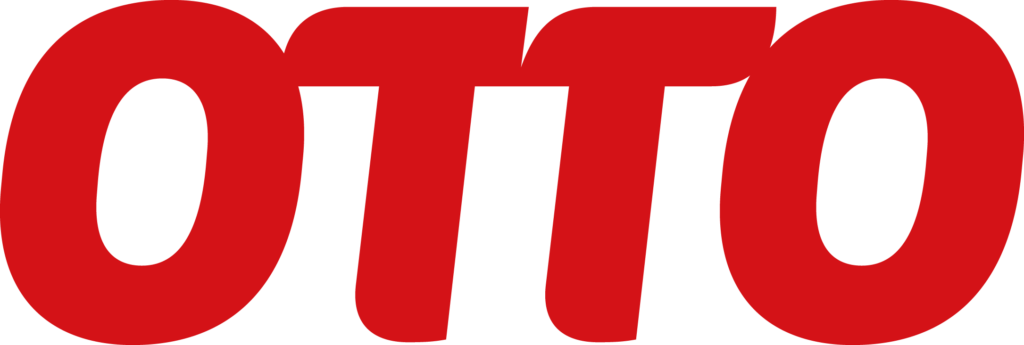
Supported by

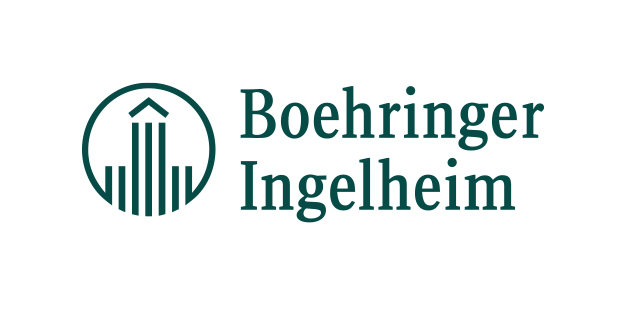
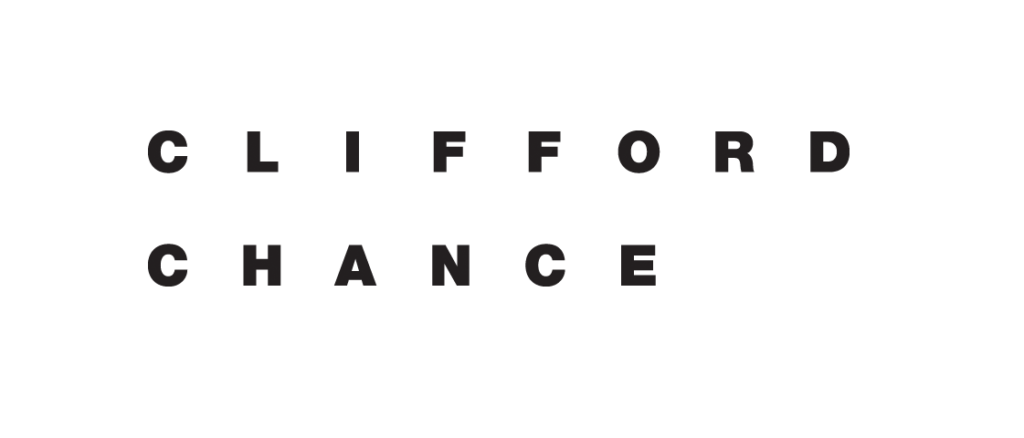
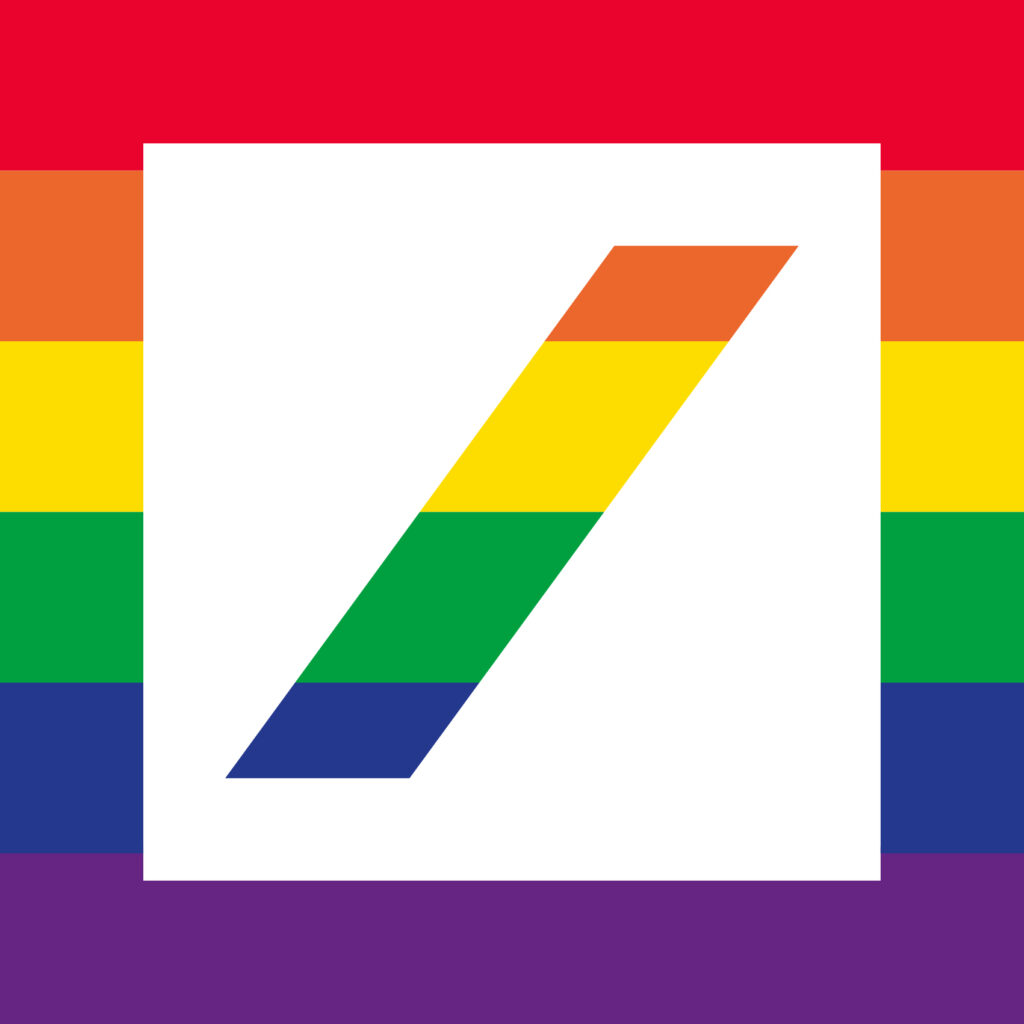
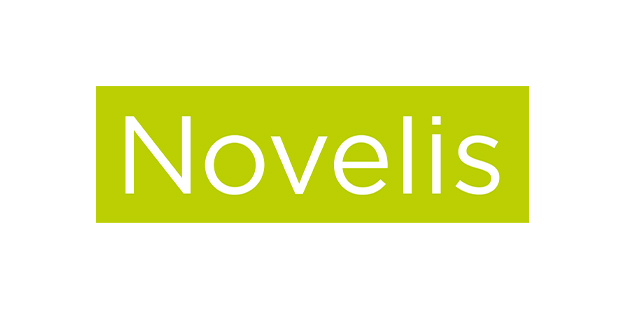
Mobility Partner
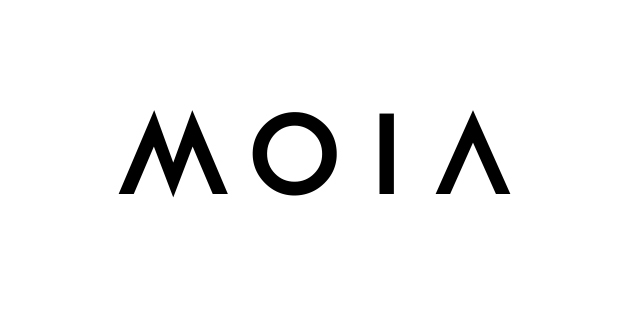
Follow us on social media!
Instagram: https://www.instagram.com/proutatwork/
LinkedIn: https://www.linkedin.com/company/proutatwork/
On September 13 and 14, 2024, Bellevue Palace in Berlin opened its doors as part of the Federal President’s Citizens’ Festival. On Friday, 13 September, a celebration was held in honor of around 4,000 citizens who are involved in extraordinary volunteer work. On Saturday, September 14, the Federal President welcomed all interested citizens to his official residence on Open Palace Day.
Under the motto “Pamoja – stronger together”, the event offered a varied programme with music, discussions and activities from 50 organizations, initiatives and companies that are committed to social issues such as inclusion, environmental and disaster protection, education and queer diversity. Exhibitors included the Bertelsmann Foundation, Save the Children Deutschland e.V. and YouTube. “Pamoja” is Swahili and means ‘together’.
This year’s partner state of the Bürgerfest was Lower Saxony. The international partner country of the festival was a non-European country for the first time: the Republic of Kenya, whose President William Ruto took part in the Citizens’ Festival.
PROUT AT WORK was also represented with a stand together with TÜV Nord. Together, we presented our commitment to an open and respectful working environment for queer people.
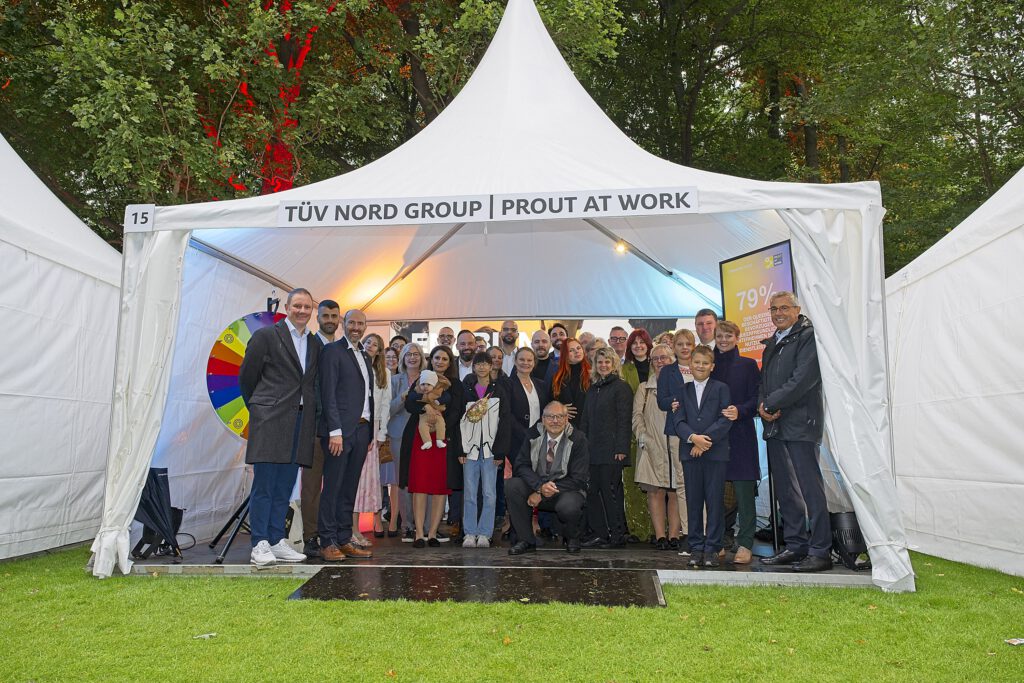
Enabling Safer Spaces
Under the motto “Enabling Safer Spaces”, we invited visitors to actively engage with the following questions:
- What can I do myself in my workplace to make queer people feel comfortable?
- What can organizations do to support queer employees in their day-to-day work?
In an interactive hands-on activity based on our Rainbow Chat Deck, we asked the guests exciting questions on topics such as visibility, role models, facts & figures, workplace design and identity. The questions were randomly selected with the help of a wheel of fortune, which led to lively discussions, reflections and inspiring exchanges.
Highlight: Federal President Steinmeier visits us
A special highlight was the visit of Federal President Frank-Walter Steinmeier to our stand. We had the honor of presenting our work to him and talking to him about the importance of queer diversity in the workplace. His interest and support for our cause made a deep impression on us and motivated us to continue our mission.
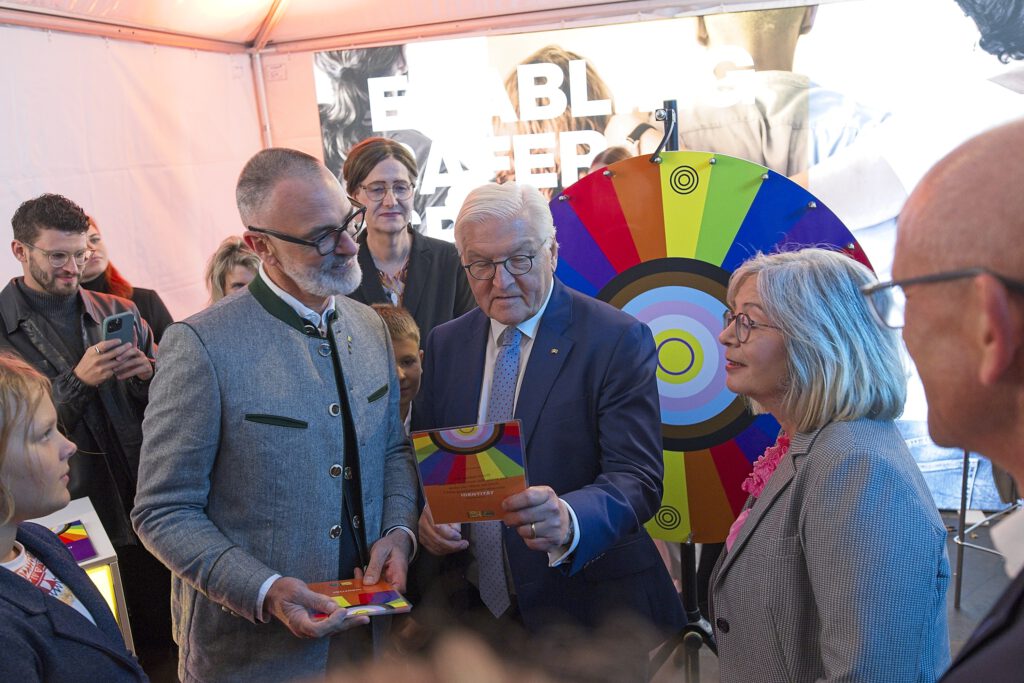
A thank you to everyone involved
Our heartfelt thanks go to TÜV Nord, who made it possible for us to take part in this fantastic event, and to all the visitors who came to find out more and talk to us. Their curiosity and openness showed once again how important our commitment to a diverse working environment is.
Stronger together – also in the working environment
The citizens’ festival at Bellevue Palace not only gave us the opportunity to present our work to a broad public, but also showed how much interest there is in topics such as queer diversity. With our work, we can continue to contribute to creating a working environment in which all people are welcome – regardless of their sexual orientation or gender identity.
Further information on the Bürgerfest can be found here.
Impressions from the event
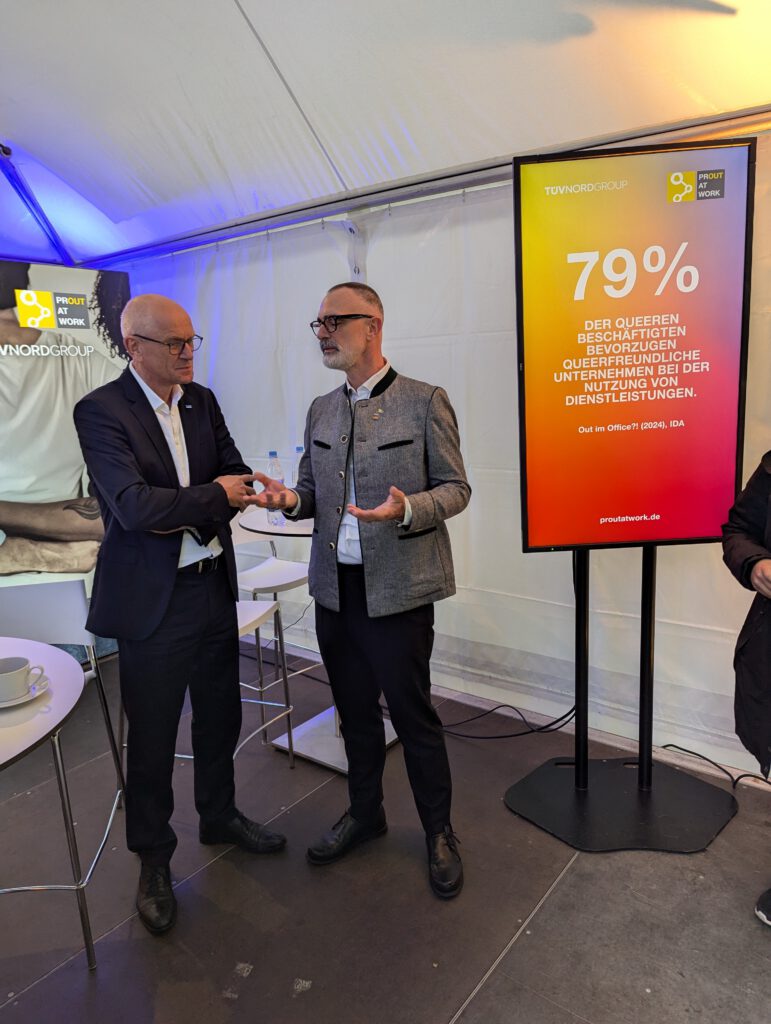
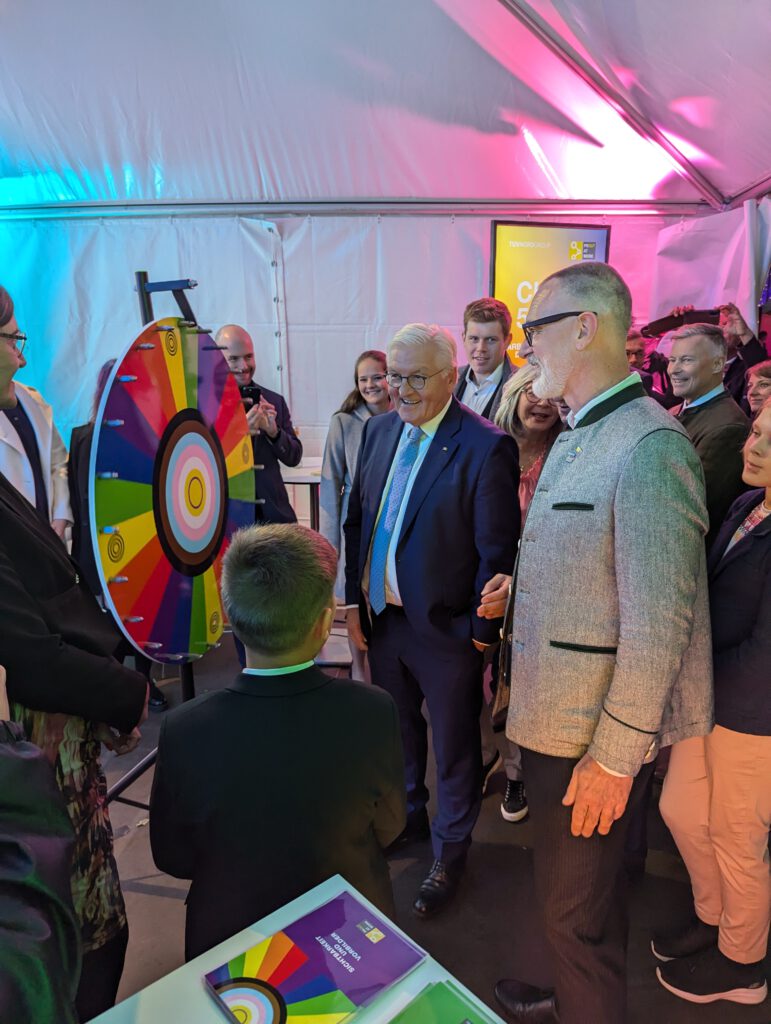
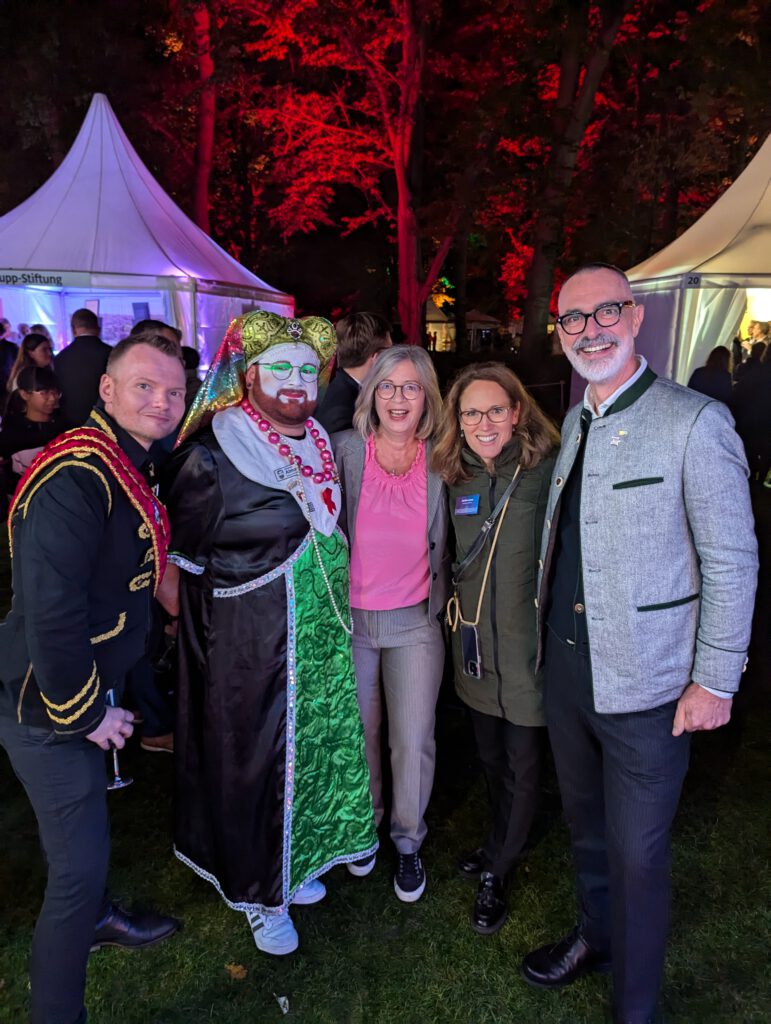
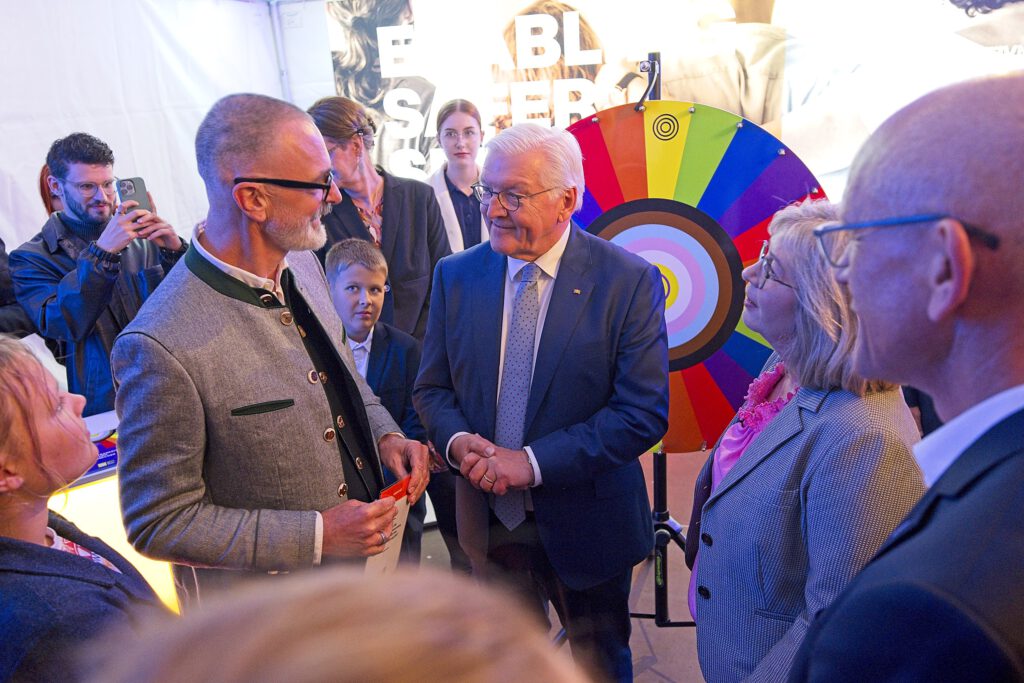
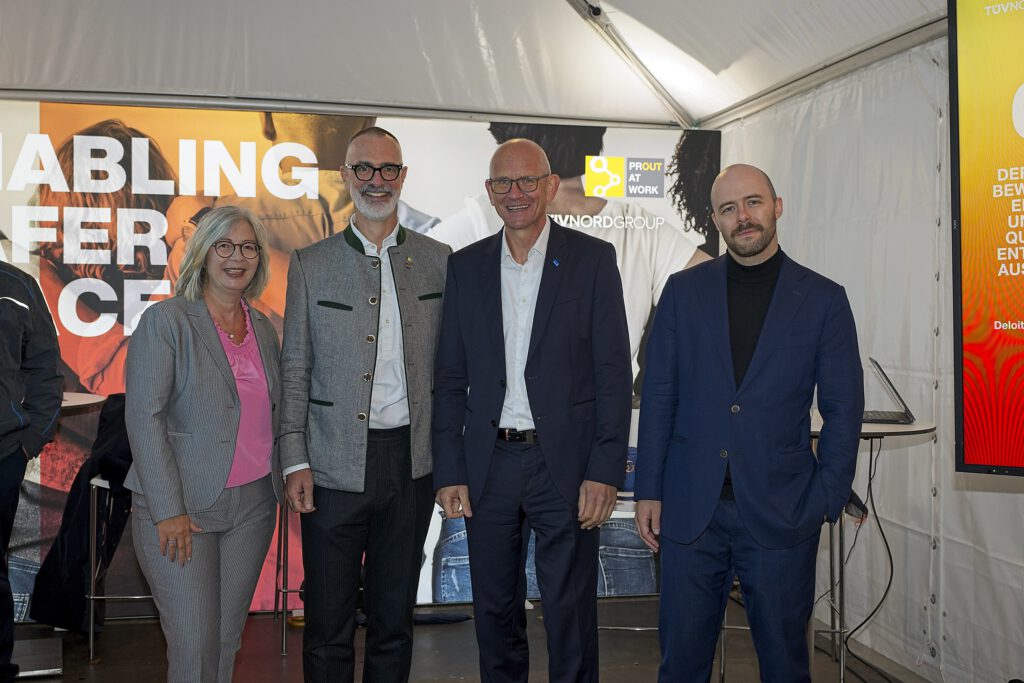
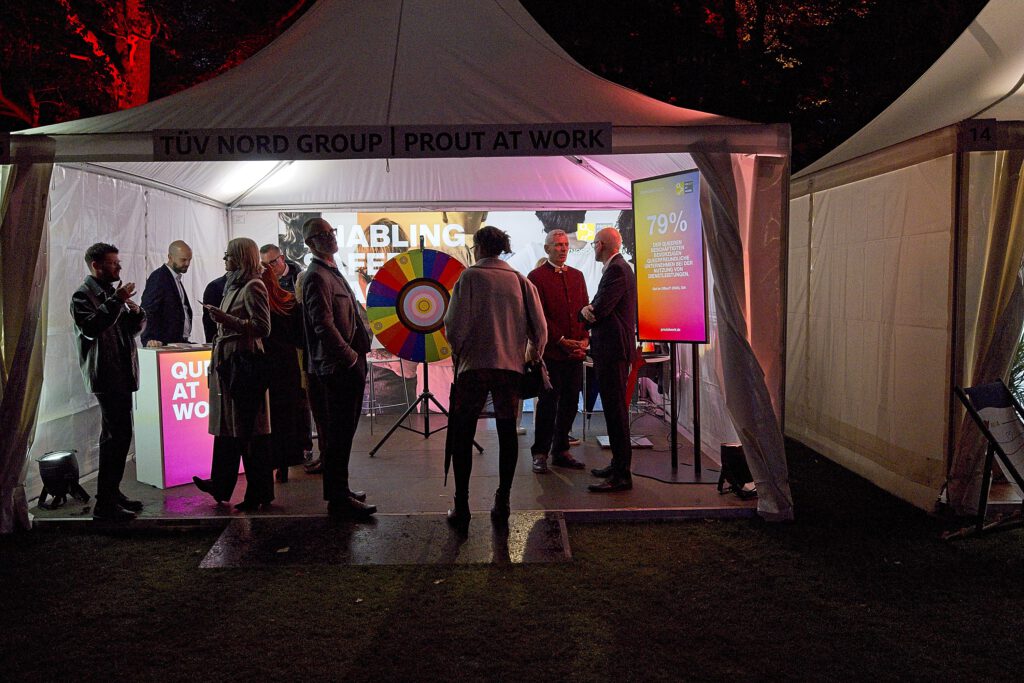
Copyright Fotos: Holger Hütte
Follow us on social media!
Instagram: https://www.instagram.com/proutatwork/
LinkedIn: https://www.linkedin.com/company/proutatwork/
Christopher Street Day (CSD) is much more than just a colorful parade. It is a powerful symbol of queer visibility, equal opportunities and solidarity. Year after year, CSD brings people together to stand up for the rights of the queer community and a society free of discrimination. PROUT AT WORK actively participated in the CSD in Pirna and Berlin in 2024 to set an example for diversity, democracy and tolerance.
Why Christopher Street Day is so important
The CSD is a loud and visible appeal against discrimination and intolerance. It is reminiscent of the Stonewall riots of 1969, which laid the foundations for the modern queer movement. Today, CSD is a platform for denouncing social grievances, promoting education and celebrating the achievements of the queer community.
The CSDs in Pirna and Berlin impressively demonstrated the importance of solidarity and commitment to an open society.
CSD Pirna: A strong signal for tolerance and democracy
#TourFürToleranz with Meryl Deep
On July 13, 2024, drag queen Meryl Deep called for the #TourFürToleranz (#TourForTolerance) to bring people from all over Germany to Pirna. The tour took the form of a comedy and entertainment bus trip from Cologne to Pirna and back again. The town in Saxony is a key venue in the fight for diversity and against intolerance.
Pirna was the first city in Saxony to fly the rainbow flag at the town hall – a historic sign of solidarity. But in 2024, this tradition was stopped by the mayor, an avowed AfD sympathizer. This decision led to even more determined commitment on the part of the queer community throughout Germany.
Diversity Unites
Jo Labecka, Customer Relationship Manager at PROUT AT WORK, was given the opportunity to speak on stage at the CSD Pirna and set an example for diversity:
“Diversity connects is the motto of today’s CSD. Therefore: Let us demonstrate together a strong stance for solidarity and against ableism, racism and trans hostility. (…). Let us be a role model for the wider society of what real cohesion between very different identities can look like. (…). Happy Pride, Pirna!”
Impressions From The CSD in Pirna
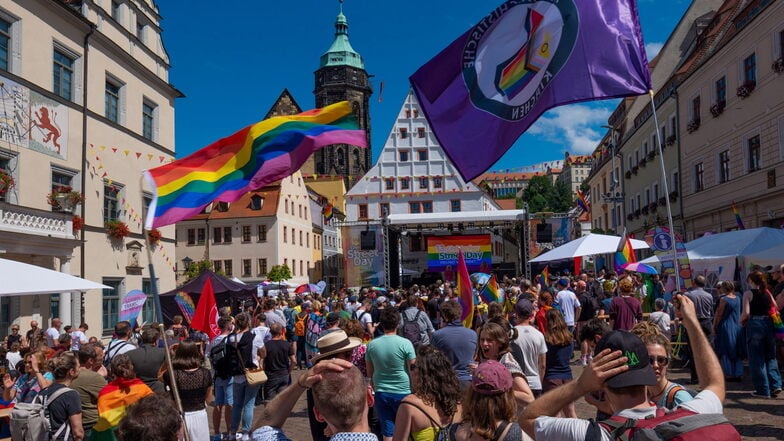
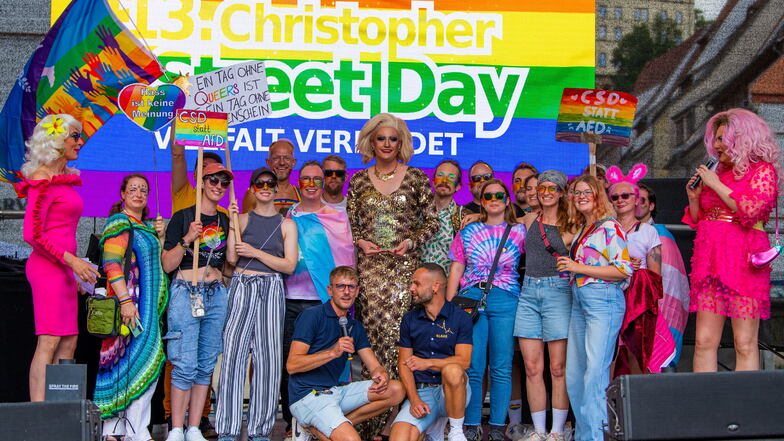
CSD Berlin: Strong together with MagentaPride
Berlin glowed in all the colors of the rainbow on July 27, 2024. Under the motto “Only strong together – for democracy and diversity”, hundreds of thousands marched through the streets to stand up for queer rights.
Long-standing partnership
PROUT AT WORK was able to join MagentaPride, Deutsche Telekom’s queer network, at CSD Berlin. The float was not only pink and loud, but also conveyed a clear message: standing up for a democratic and diverse society is a shared responsibility.
Speeches full of inspiration
One highlight was the speech by Jolanda Gallas, spokesperson for MagentaPride, who impressively represented the voices of the queer community. Sy Legath from PROUT AT WORK also reminded the audience in his speech that solidarity for the queer community is not just limited to CSD:
“Let’s find ways to empower each other. Let’s create safe spaces where we can all be who we really are. (…). Berlin, let’s show solidarity with each other not just today, but 365 days a year. Let’s stand up for our rights together, be loud and celebrate each other. (…). Thank you Berlin for being on the streets! Happy Pride!”
Impressions from The CSD in Berlin
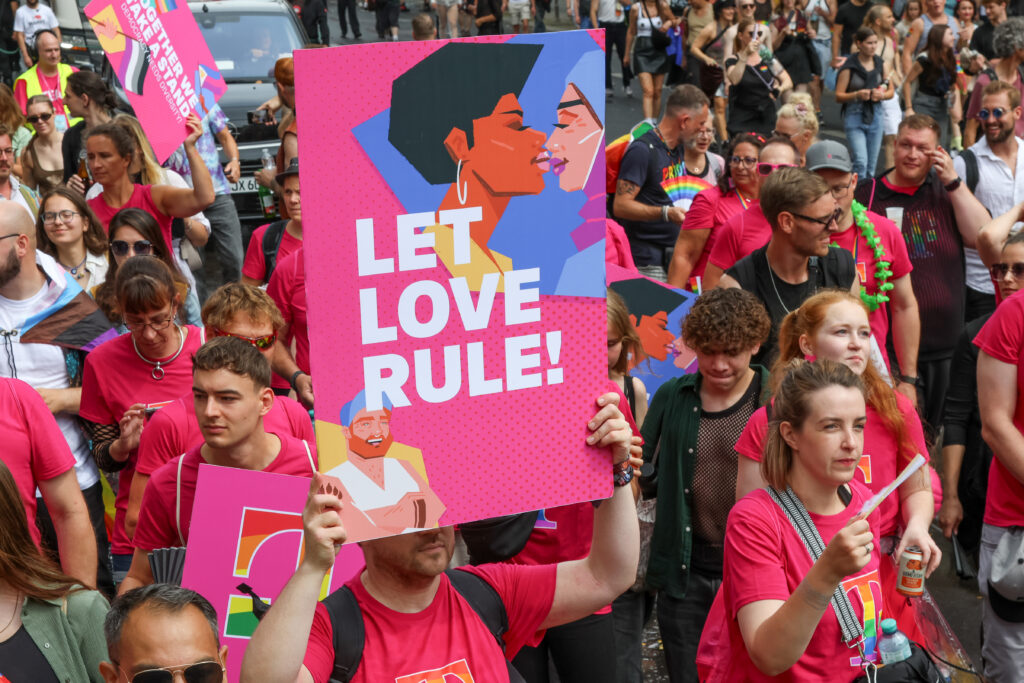
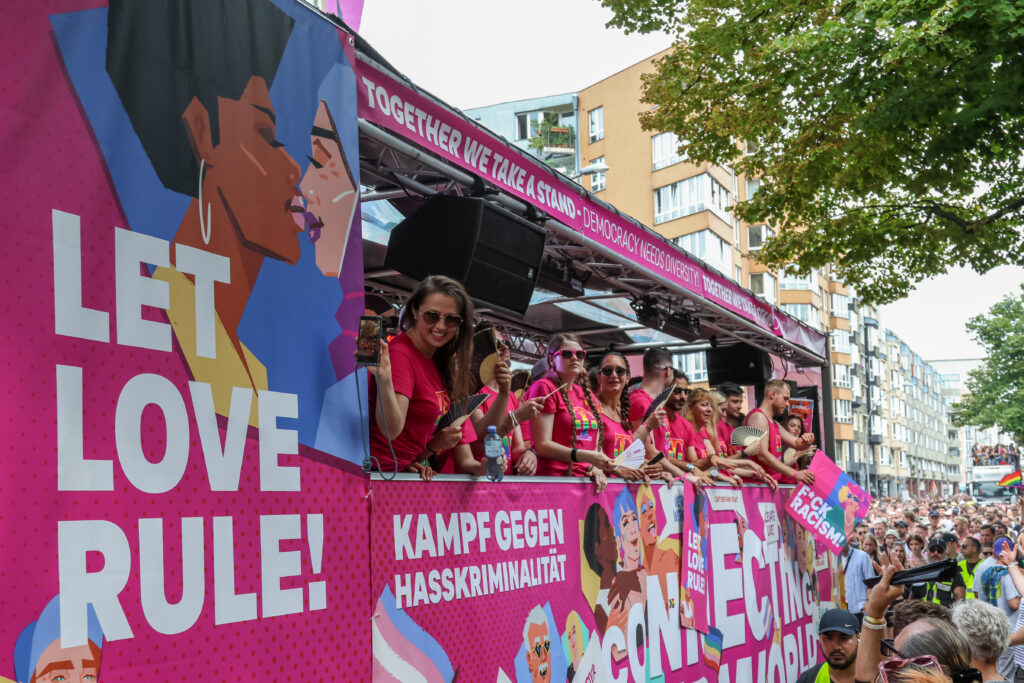
Follow us on social media!
Instagram: https://www.instagram.com/proutatwork/
LinkedIn: https://www.linkedin.com/company/proutatwork/
On October 17, 2024, the PROUT AT WORK Foundation sent a strong signal for queer diversity in the workplace in Austria: Together with the global law firm Freshfields, the kick-off event took place in Vienna, marking the beginning of the foundation’s activities in Austria.
PROUT AT WORK, which has been successfully active in Germany and France for years, is thus expanding its work radius to Austria in order to support companies there in promoting equal opportunities and visibility for queer issues.
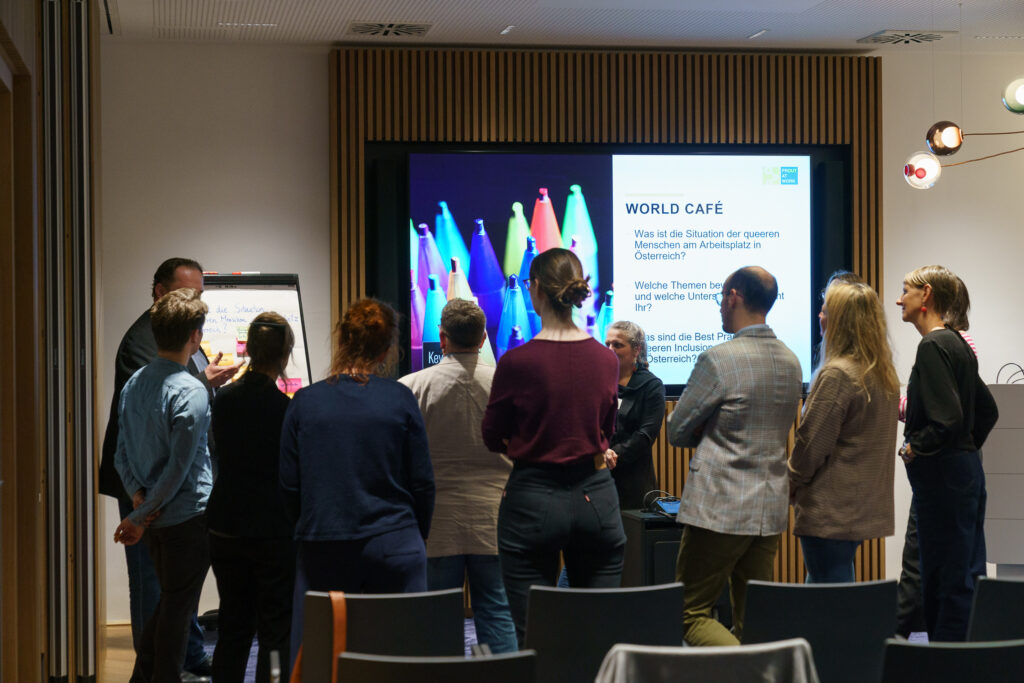
Why queer diversity is also important in Austria
20% of queer people in Austria experience discrimination in the workplace (source: EU LGBT II Survey, 2020). This figure illustrates the importance of promoting diversity in the workplace. Through diversity measures, companies not only benefit from an appreciative working environment, but can also exploit the full potential of talent.
Albert Kehrer, CEO of PROUT AT WORK, emphasized: “Only if companies show visibility for queer issues can they create an appreciative environment for queer employees and thus expand the pool of applicants.”
Highlights of the kick-off event
Around 40 participants from business, education, healthcare and the public sector came together at Freshfields’ Vienna office. PROUT AT WORK was delighted with the positive reactions from companies in Austria.
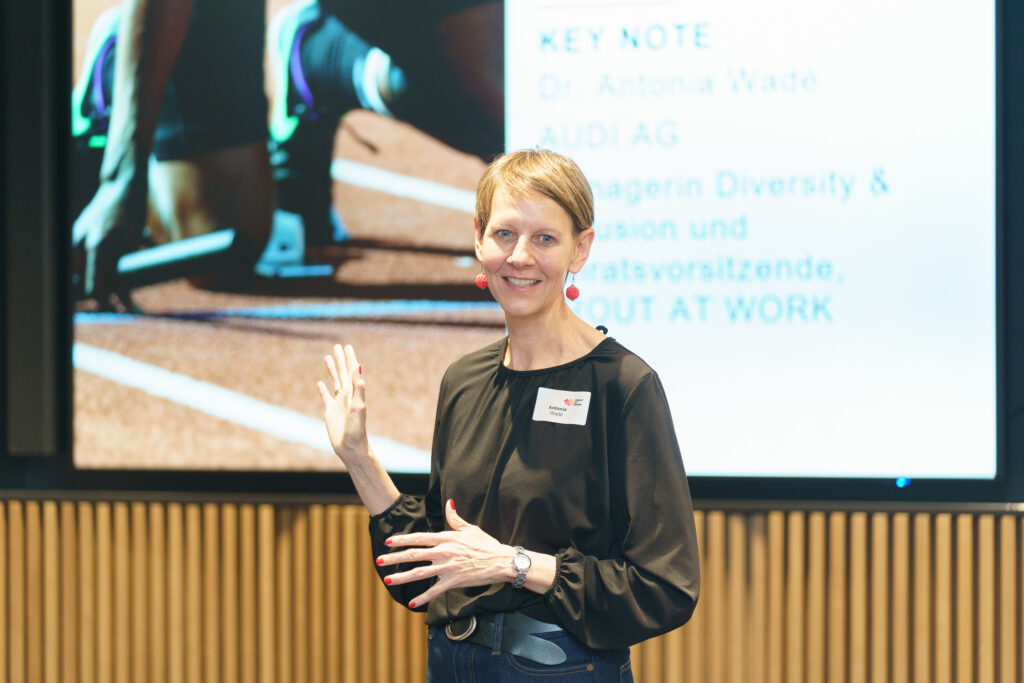
In her inspiring keynote speech, Dr. Antonia Wadé explained how companies can make queer diversity visible in three steps. Antonia has been working in various functions at AUDI AG since 2000 – since 2017 in the Diversity & Inclusion department. She shared her personal experiences and spoke about the founding of the queer@audi network.
In interactive formats, the participants addressed the current situation of queer people in the workplace. They exchanged best practices and discussed future DEIB measures.
“As a law firm, we want to actively contribute to the promotion of queer diversity in Austria. Our global LGBTQ+ network, which is also growing in this country, is living proof of how we put our values into practice. Through training, confidants and pro bono work, we create an environment in which all colleagues can feel comfortable and thrive. Together with PROUT AT WORK and other companies, we want to continue this positive development and make Austria an even more diverse and inclusive place.” – Florian Klimscha, HR Partner at Freshfields
Looking to the future: more visibility and commitment
PROUT AT WORK plans to work closely with companies in Austria over the next few years. The aim is to strengthen queer networks, promote exchange and support companies in their transformation. The kick-off event in Vienna was a complete success and laid the foundation for more queer diversity in the Austrian workplace. Companies that actively promote diversity benefit from an open, innovative and inclusive working environment – a win-win situation for employees and employers alike.
Impressions from the event
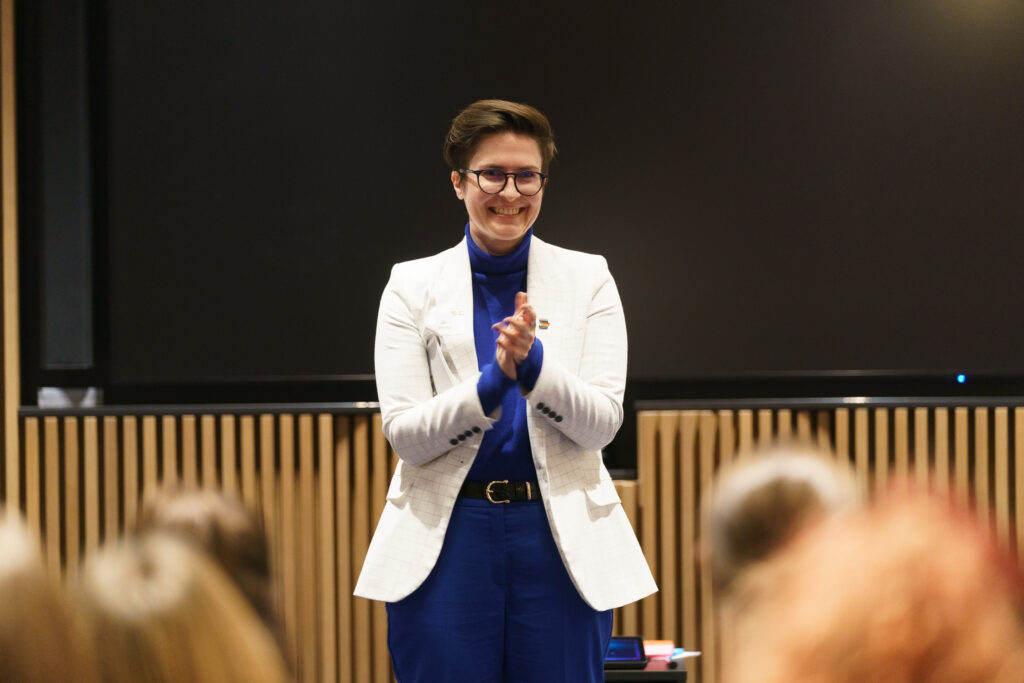
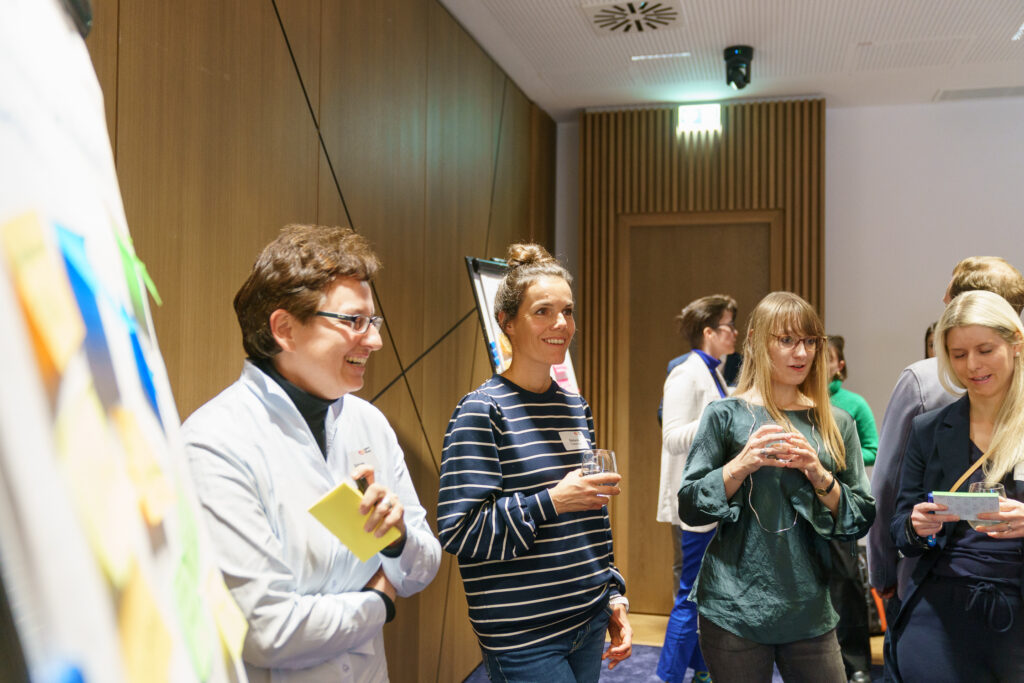
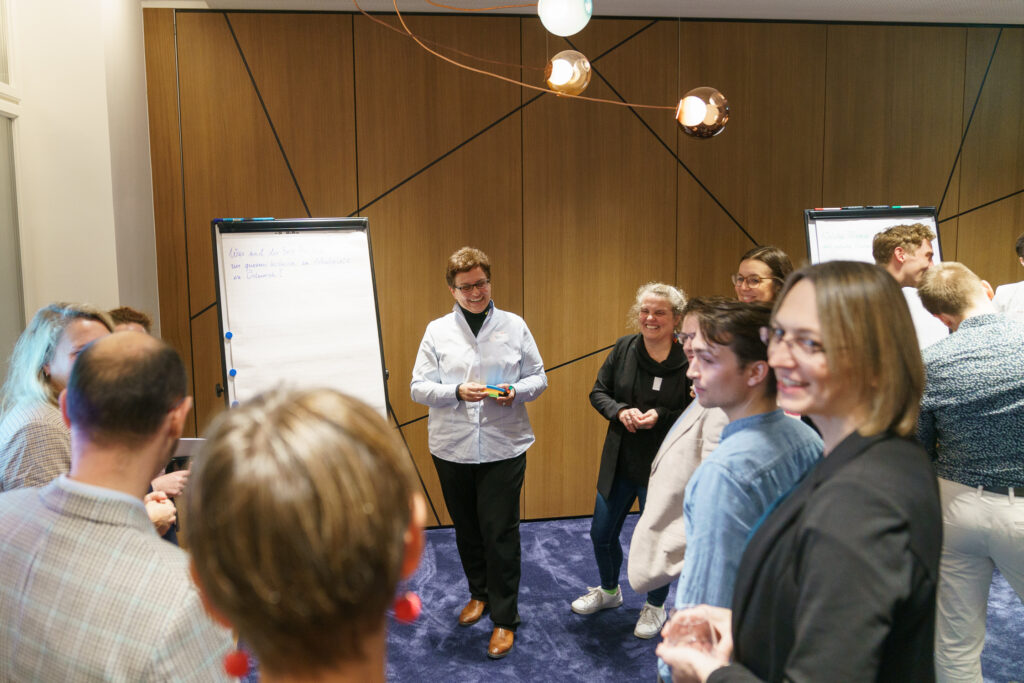
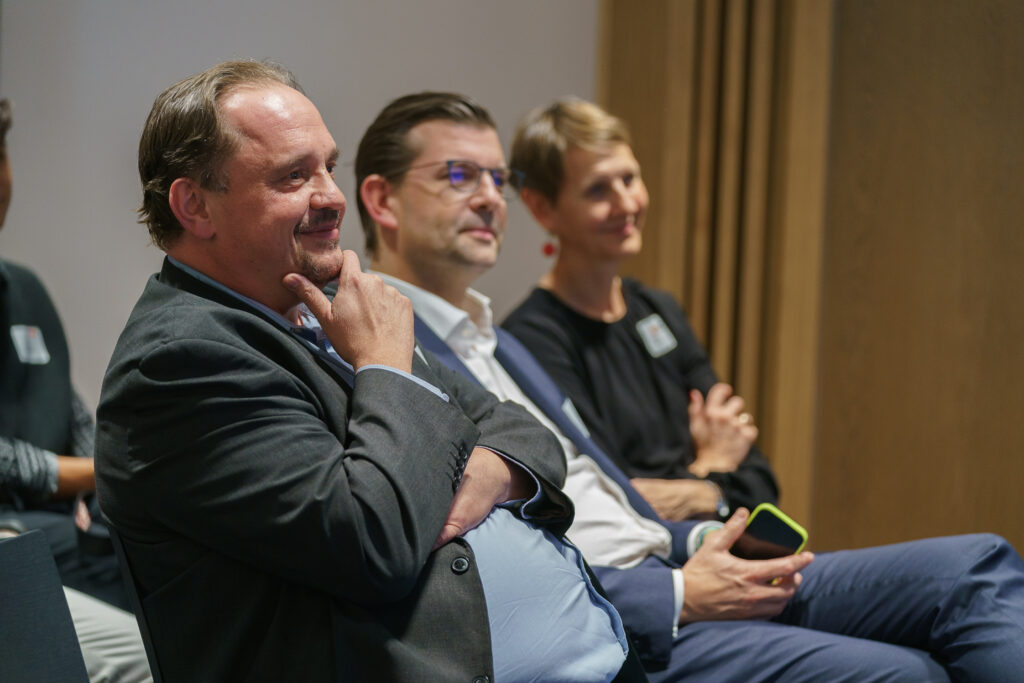
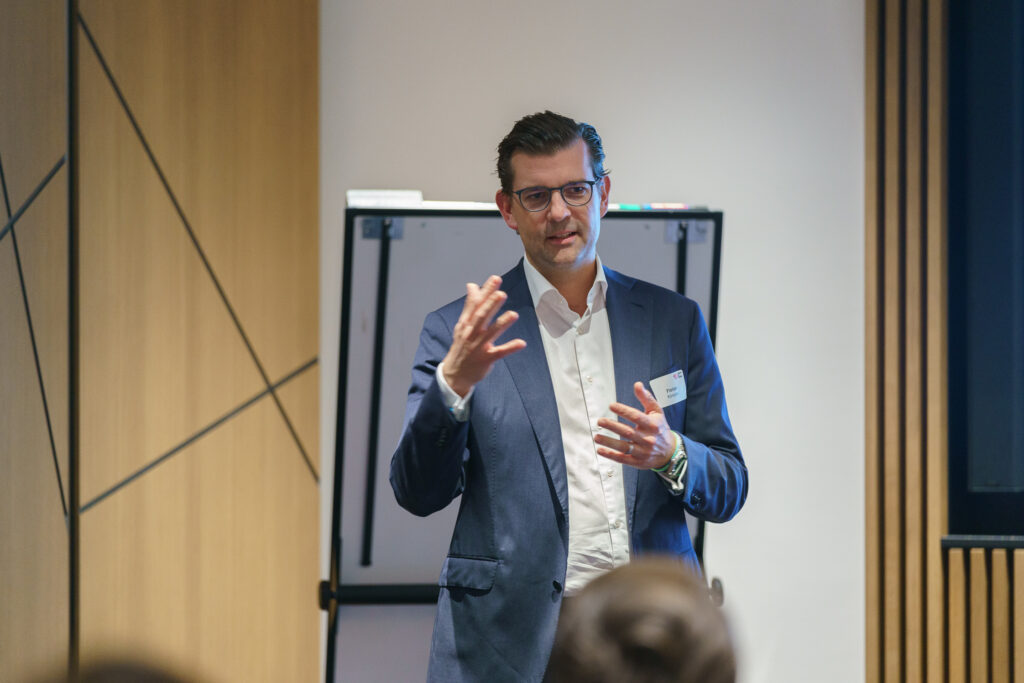
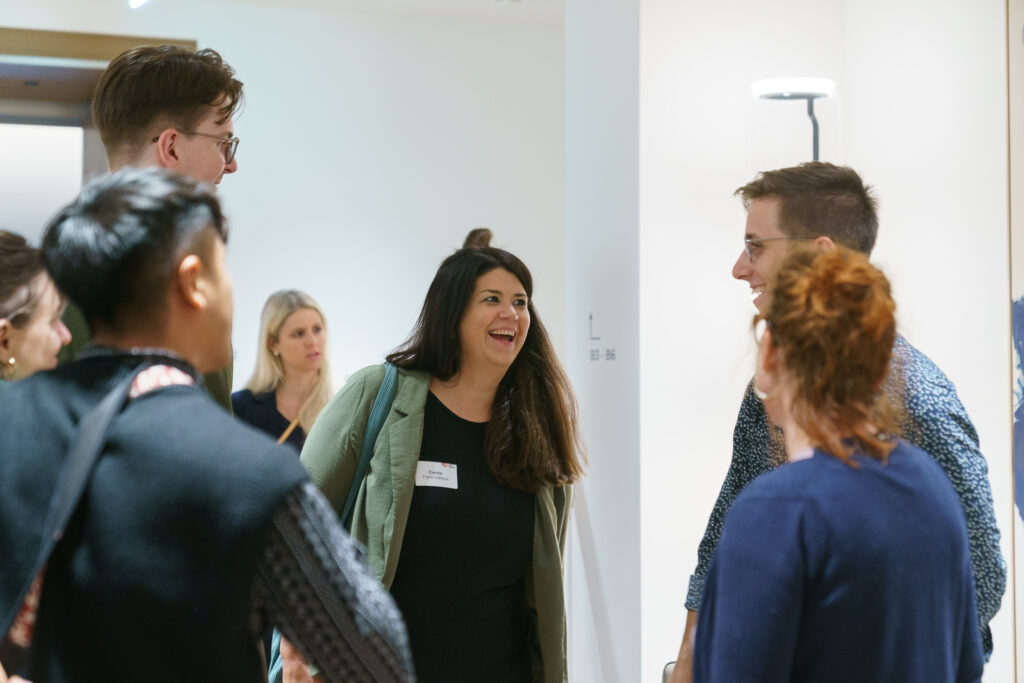
Copyright Fotos: Martina Draper – SinnBild
Follow us on social media!
Instagram: https://www.instagram.com/proutatwork/
LinkedIn: https://www.linkedin.com/company/proutatwork/
On June 28, 2024, the first PROUT AT WORK gala took place at the Rosewood Hotel in Munich under the motto “Together for queer diversity” – including a stage program and silent auction. Among the invited guests were Juliette Schoppmann and Tahnee, who wowed the audience with their performances.
The exclusive Rosewood Hotel in Munich provided the perfect setting for the first PROUT AT WORK gala. The red carpet at the entrance and the photo wall made for an elegant reception. Drag queens Vicky Voyage and Pinay Colada greeted the guests in breathtaking outfits made of tulle and sequins. The event was attended by around 65 people from business, politics and the media, who all dressed in elegant evening wear in keeping with the “fancy or formal” dress code.
Four-course menu, networking and silent auction
After PROUT AT WORK celebrated its tenth anniversary in Berlin in April 2024, the glamorous follow-up event followed: a gala at the Rosewood Hotel in Munich with a four-course menu, networking, a silent auction and entertaining performances by Juliette Schoppmann and Tahnee.
The gala was hosted by Benjamin Stöwe. He has been one of the defining faces of the ZDF morning show live from Berlin for ten years. He also shoots reports, lends his voice to international actors as a dubbing artist and hosts major events.
In addition to the content highlights, special attention was also paid to the Silent Auction, which was opened on the gala evening. On this evening and beyond, guests were able to bid on spectacular experiences and unique items, such as a signed jersey by basketball player Dirk Nowitzki or design sketches with the signature of BMW’s chief designer. The proceeds from this auction benefited the foundation’s work and supported PROUT AT WORK on its mission to achieve more queer equality and combat discrimination in the workplace.
“Thanks to the support of everyone who attended the gala, but also those who support us with donations outside of the event, we can continue to expand our foundation’s work. For us, more resources mean that we can give the issue even more visibility and raise awareness of queer diversity in companies – because queer people are still subject to poor treatment and discrimination in the workplace.” – Albert Kehrer, board member of PROUT AT WORK.
Moving speeches and entertainment at the highest level
At the beginning of the gala, Albert Kehrer, Chair of PROUT AT WORK, warned about the current political developments and the rising queer hostility in the country. Ten years ago — when the PROUT AT WORK-Foundation was founded — the atmosphere was very different. Recognition and inclusion of the queer community within companies and society were on the rise. Today, he said, our solidarity within the queer community is more important than ever.
The highlights of the event were the performances by Tahnee and Juliette Schoppmann. Tahnee offers the ultimate mix of stand-up, parody, and music — from sophisticated to silly — all combined into one show. For her fans, Tahnee has been the undisputed number one in parody for over ten years, a fact she continues to prove to perfection in countless TV appearances and her own formats.
Juliette Schoppmann rose to fame in 2002 as a finalist in the first season of “Deutschland sucht den Superstar”, where she finished in second place. The trained dancer, musical theatre performer, and singer went on to release her own music, write songs for other artists, and make occasional television appearances. From 2013 to 2023, Juliette taught at the Music Academy Cologne-South and the Music Academy Bonn. In 2014, she coached the winner of “Das Supertalent” to victory and returned to “Deutschland sucht den Superstar” as a vocal coach from 2018 to 2023.
The PROUT AT WORK Gala concluded with a delicious dessert, closing remarks, and relaxed networking. We would like to thank everyone who joined us and supported PROUT AT WORK through their generous donations during the Silent Auction!
Impressions of the event
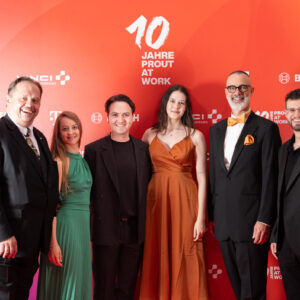
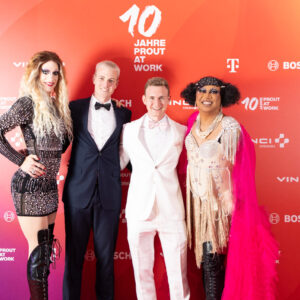
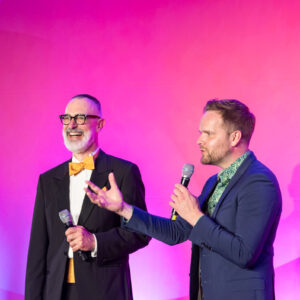
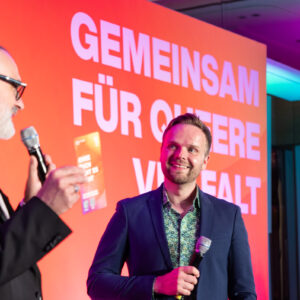
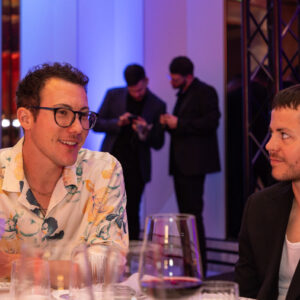
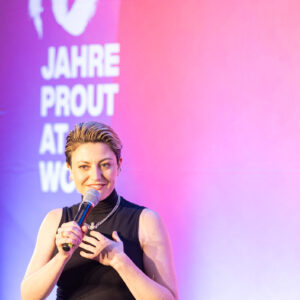
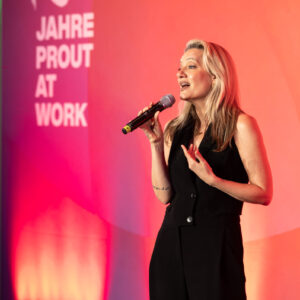
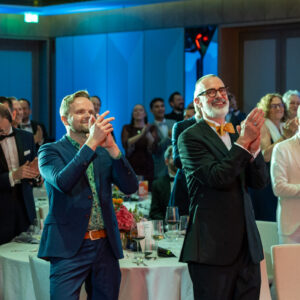
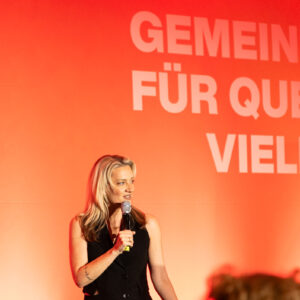
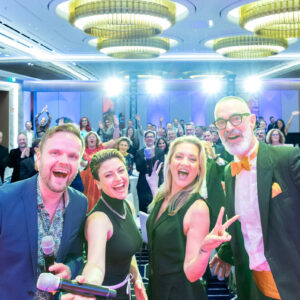
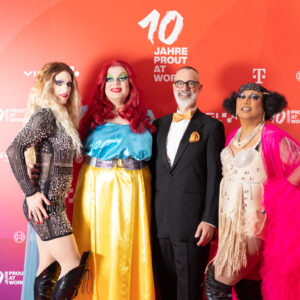
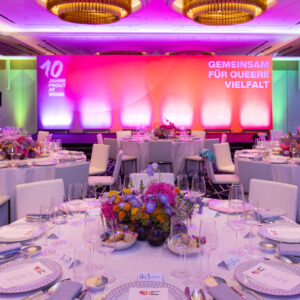
Fotocredits: Jan Patrick Margraf
Kindly supported by
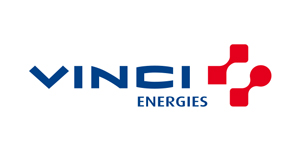

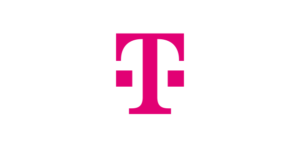
Follow us on social media!
Instagram: https://www.instagram.com/proutatwork/
LinkedIn: https://www.linkedin.com/company/proutatwork/
With an impressive tour across Germany, Brix Schaumburg, freelance artist, and Robin Scheerbaum, systemic consultant and content creator for queer activism, set a powerful example for queer diversity. In doing so, the two pursued a clear goal: to bring people together, promote dialog on queer issues and raise funds for PROUT AT WORK.
1,600 kilometers for a good cause
The bike tour began on September 15, 2024 at the Zugspitze and ended in Berlin. Brix and Robin covered around 1,600 kilometers – despite challenging weather conditions and great physical exertion. The effort paid off: a total of 7,000 euros was raised for the PROUT AT WORK Foundation. The collected donations were ceremoniously handed over at the PROUT AT WORK Conference 2024 at OTTO in Hamburg.
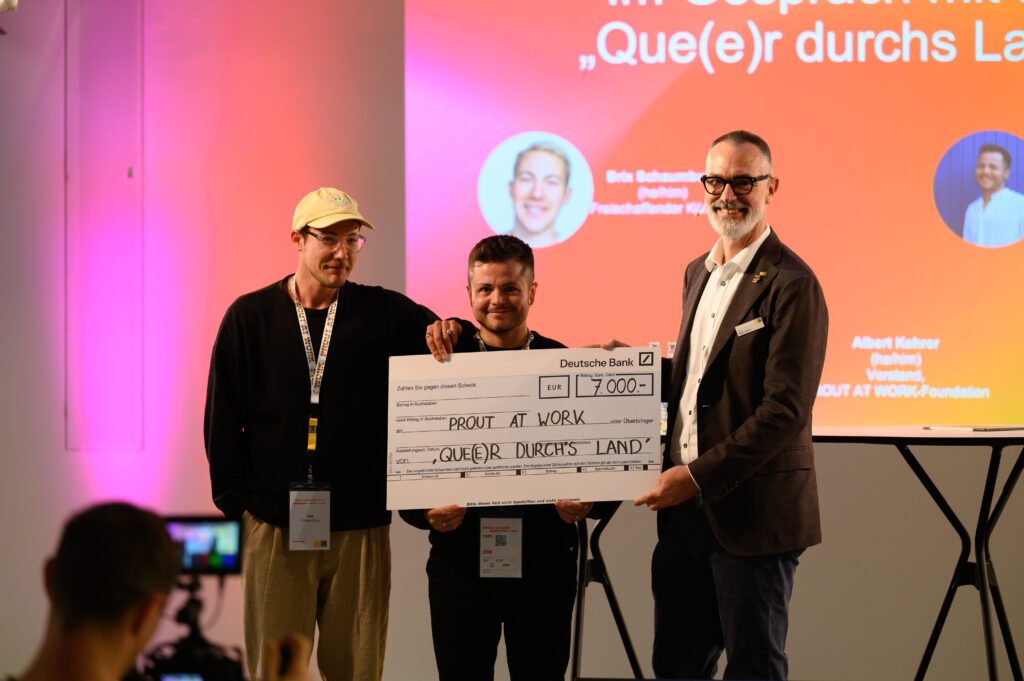
“Receiving the donation means an incredible amount to us! Thanks to the financial support, we can create more resources for our valuable work and support even more companies on their journey towards queer diversity and equal opportunities. We are also incredibly grateful for the media visibility that PROUT AT WORK has received through Brix and Robin. Because only if we are visible and loud will our concerns and those of all queer people be heard and implemented.” – Albert Kehrer, board member of PROUT AT WORK.
Stops full of encounters and inspiration
A particular focus of the tour was the exchange with the local community. Every evening, Brix and Robin met inspiring people to talk about queer issues together. Here are some of the stops on the bike tour:
- Munich (16.09.): Queer History Tour and karaoke at the Sub – Schwules Kommunikations- und Kulturzentrum München e.V.
- Ingolstadt (18.09.): Exchange at the trans* get-together and queer regulars’ table
- Mannheim (21.09.): Reading and karaoke evening at Queeres Zentrum Mannheim
- Wolfsburg (29.09.): Visit to the soccer stadium
- Berlin (06.-08.10.): Closing events with panel discussion at LinkedIn and the grand finale at Ride Berlin
A strong signal for queer visibility
“Que(e)r durchs Land” was not only a sporting challenge, but above all a flagship project for the visibility of queer diversity in Germany. Through a combination of personal commitment, media reach and direct dialog, Brix and Robin helped to spread the mission of PROUT AT WORK to the general public.
Outlook: cycling on for diversity
The success story continues: Brix Schaumburg and Robin Scheerbaum are also planning to continue the tour next year. A big thank you to everyone who has supported this tour – be it through donations, active participation or mental support. Together we make a difference!
Find out more about the “Que(e)r durchs Land” Tour 2024 in this video:
Follow us on social media!
Instagram: https://www.instagram.com/proutatwork/
LinkedIn: https://www.linkedin.com/company/proutatwork/
The new edition of the study “Out in the Office?!” was published to mark the International Day against Homophobia, Biphobia, Inter* and Trans*phobia (IDAHOBIT) 2024. This renowned series of studies by the IDA | Institute for Diversity and Anti-Discrimination Research has been investigating the working reality of LGBTIQA* employees in Germany since 2017. Supported by the PROUT AT WORK Foundation, the current survey provides valuable insights into how queer identities are dealt with in the workplace, experiences of discrimination and the importance of an inclusive corporate culture.
“Being open about one’s own sexual orientation or gender identity has a positive effect on the job satisfaction, commitment and organizational self-esteem of queer employees.” – Albert Kehrer, CEO of PROUT AT WORK
Key findings of the study
The new survey of the “Out in the office?!” study shows that openness and experiences of discrimination vary greatly depending on sexual orientation and/or gender identity:
Openness in the workplace
- Around a quarter of endo cis LS+ respondents, two thirds of endo cis B+ respondents and over half of endo T* respondents are closed to their colleagues with regard to their sexual or gender identity
- Are open towards all colleagues:
- 16% of endo T* employees
- 20% of endo cis B+ persons
- 37.5% of endo cis LS+ employees
Experiences of discrimination
- 78% of endo cis LS+, 89% of endo cis B+ and 87% of endo T* respondents have experienced at least one form of discrimination in the workplace.
- In a year-on-year comparison, the extent of discrimination remains at a high level: for endo cis LS+ and endo T* employees, experiences increased by 4.3% and 3.9% respectively compared to 2017.
“Among endo T* people, there has been a steady year-on-year increase in the number of people experiencing extremely high levels of discrimination. This means that they experience many different forms of discrimination.” – Nain Heiligers, Research Associate, IDA | Institute for Diversity & Anti-Discrimination Research.
Queer-friendly corporate culture
An inclusive work culture is crucial for queer people in particular – and also influences economic behavior. LGBTIQA*-friendly companies are preferred by:
- 78.6% of respondents when using services
- 72.2% of respondents when making purchasing decisions
- 71.6% of respondents for job applications
“While the proportion of closeted endo cis LS+ people has fallen continuously in recent years, the picture is less clear for endo T* and endo cis B+ people. At the same time, more endo (cis) LGBT* people are very open about their sexual or gender identity in the workplace.” – Dominic Frohn, Scientific Director, IDA | Institute for Diversity & Anti-Discrimination Research.
Actively promoting queer diversity
We need more studies like “Out in the office?!” in order to be able to argue with serious sources and draw attention to grievances in the world of work. Because experiences of discrimination against queer people in the workplace are real and it is everyone’s responsibility to speak out against it.
Follow us on social media!
Instagram: https://www.instagram.com/proutatwork/


